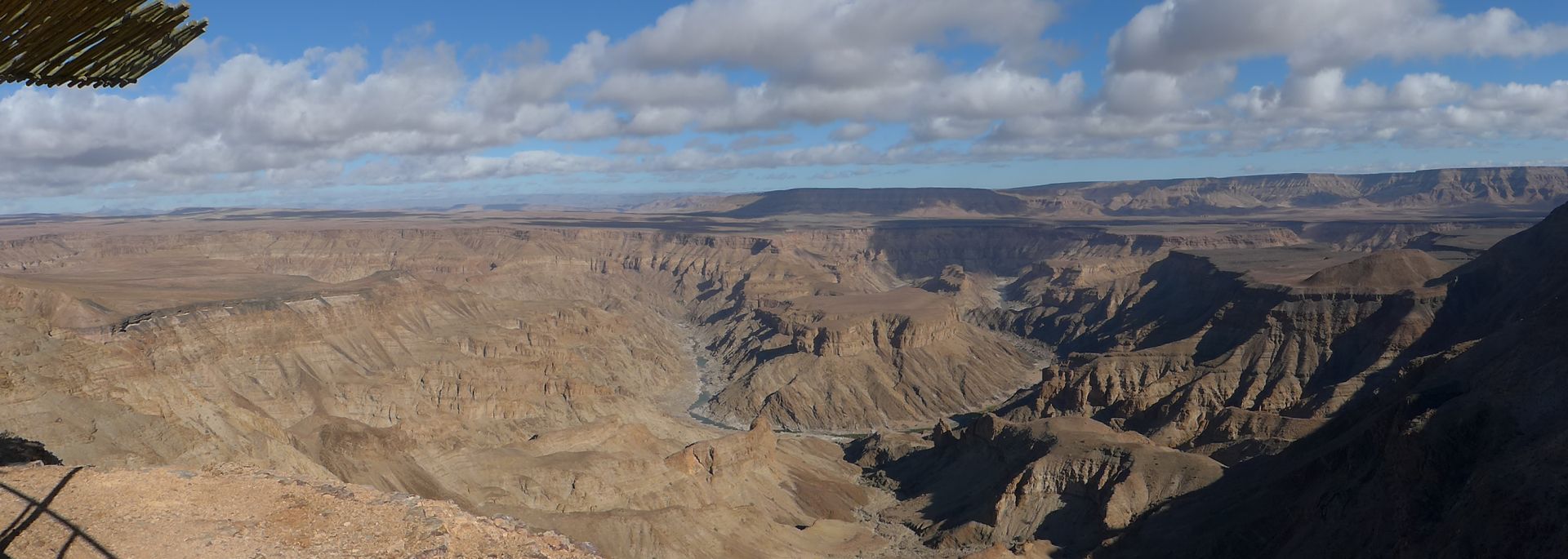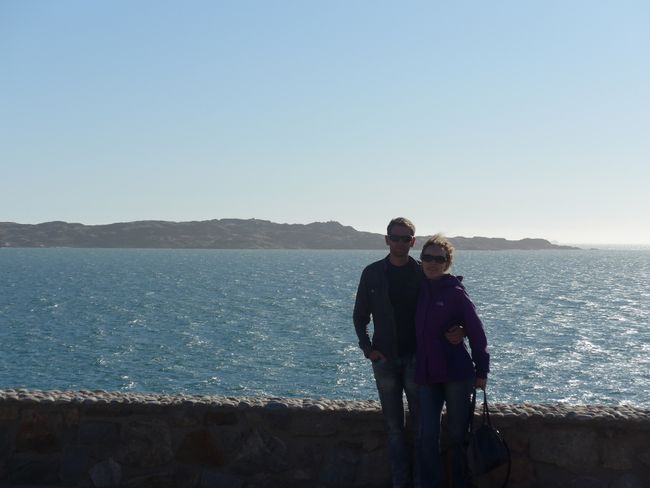Krumau an der Moldau and the village of Holašovice - UNESCO World Heritage Sites in the Czech Republic
Közzétett: 31.07.2023
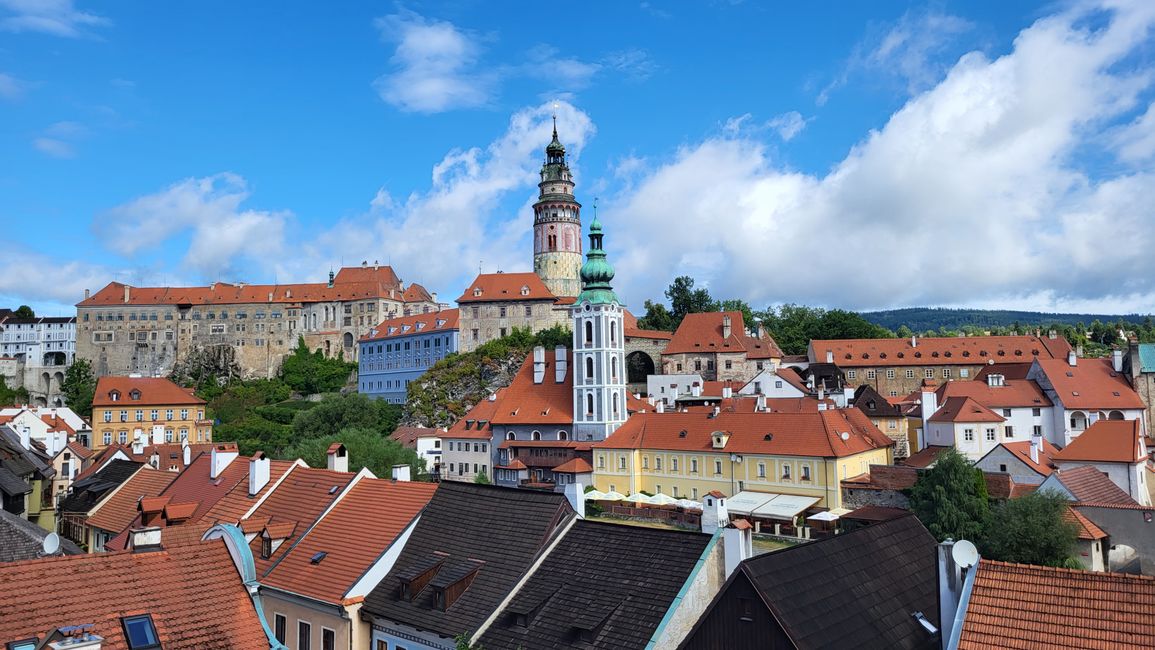
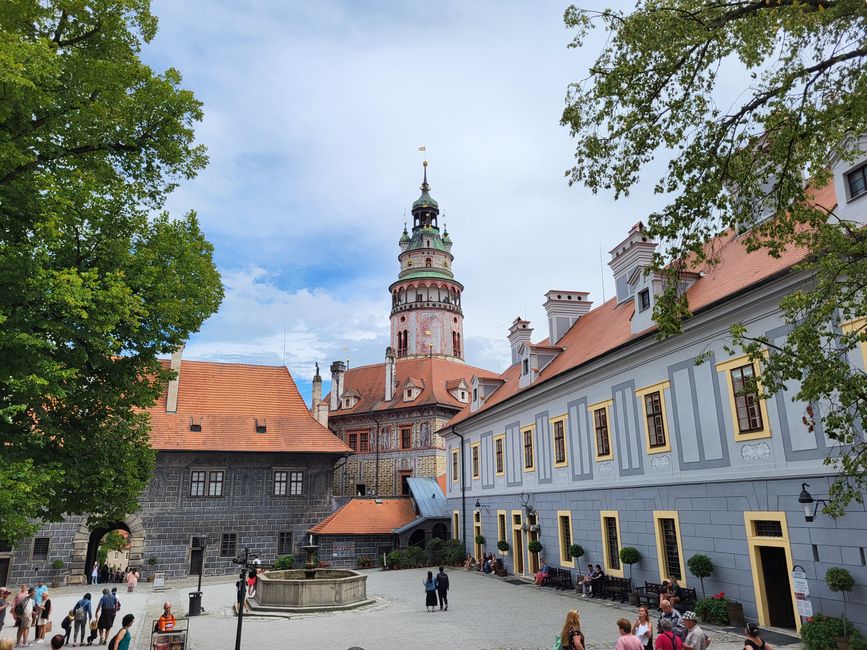
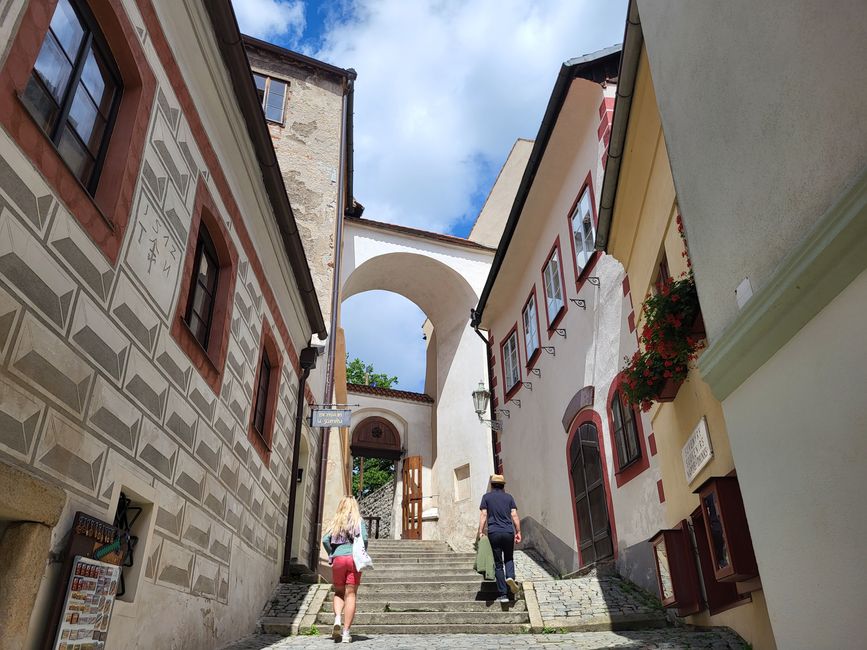
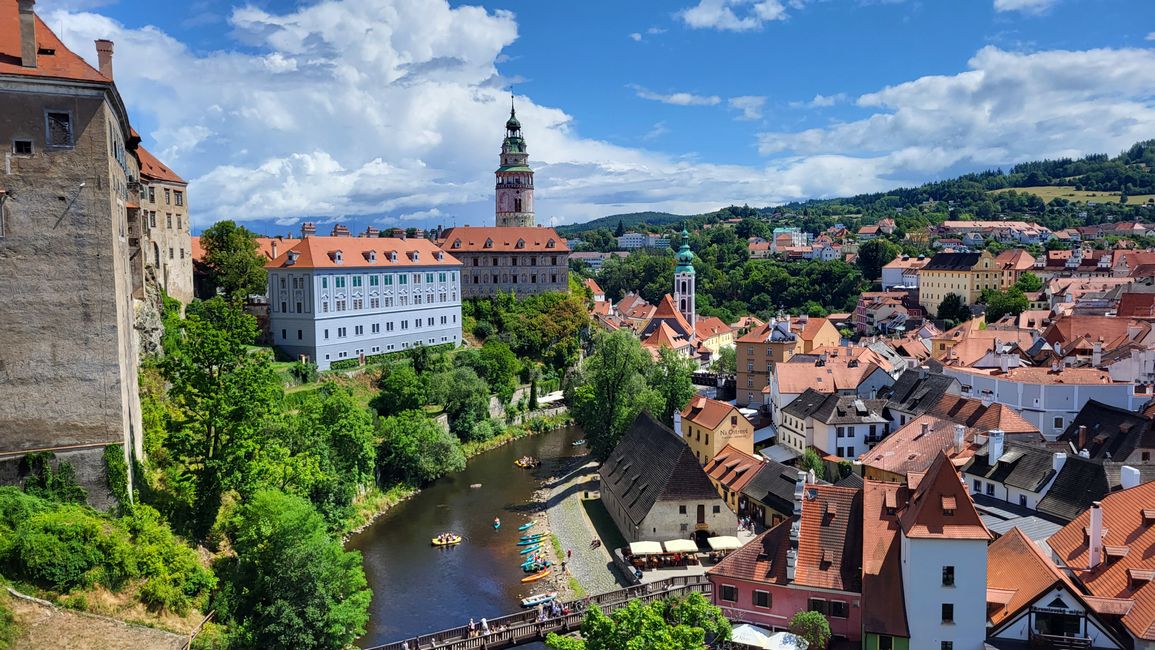
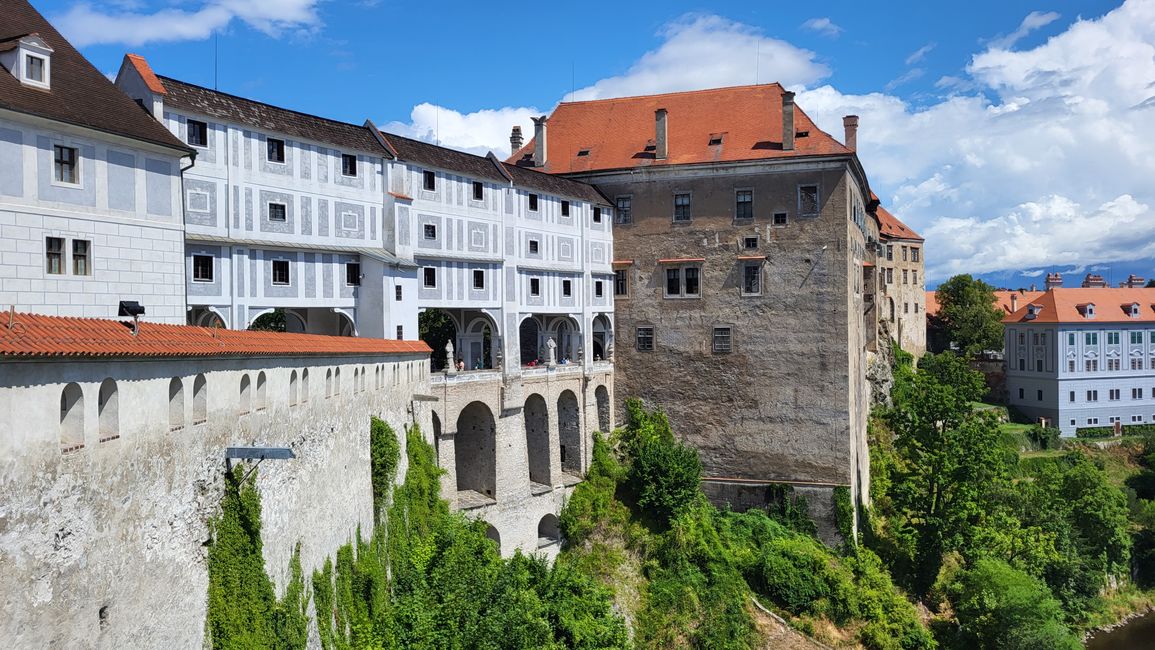
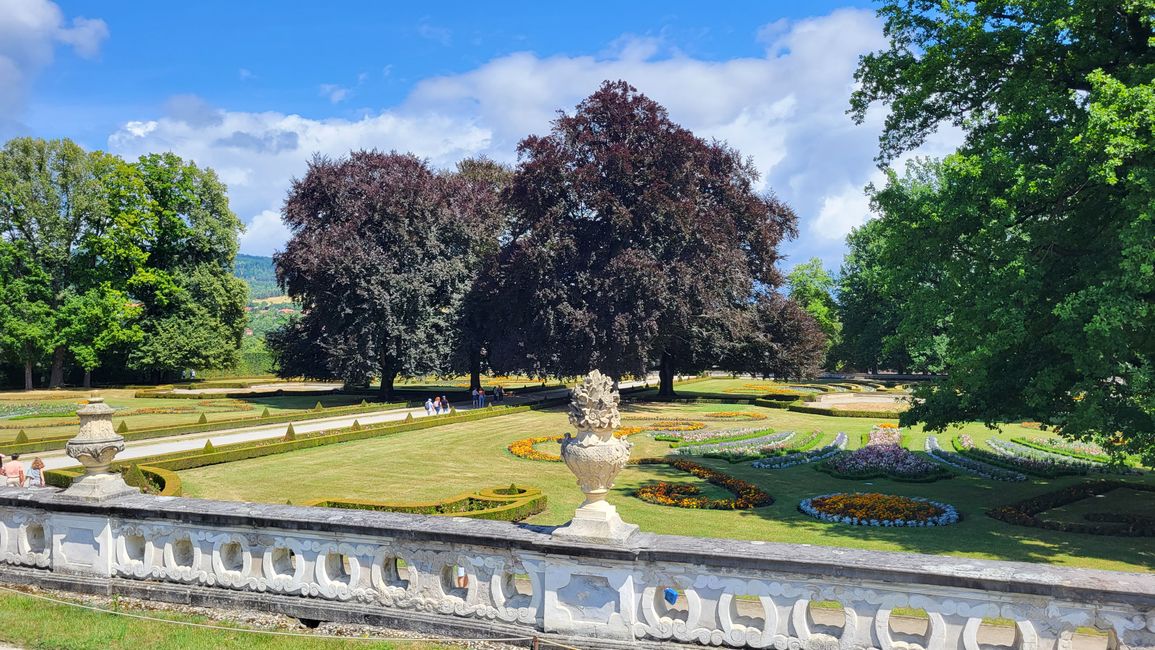
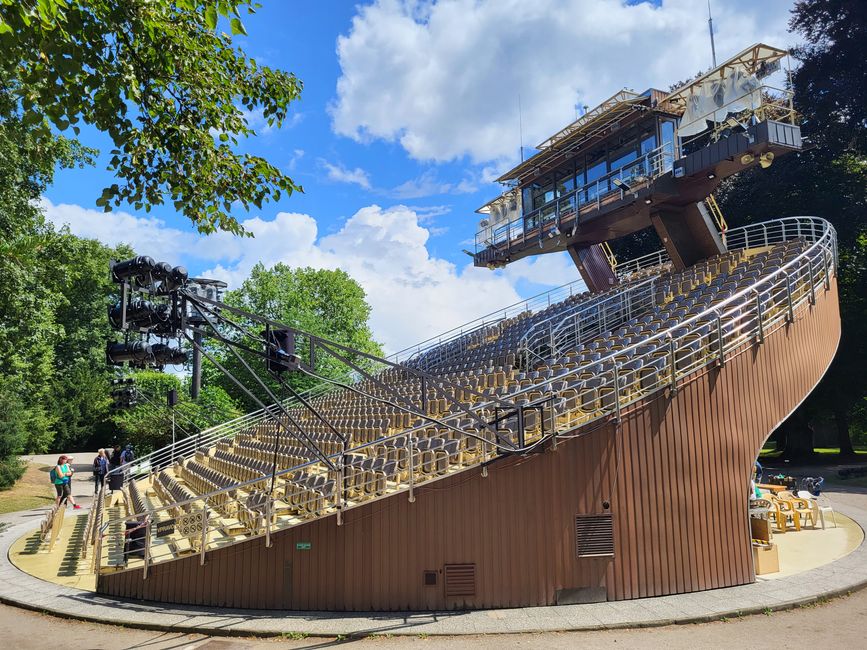
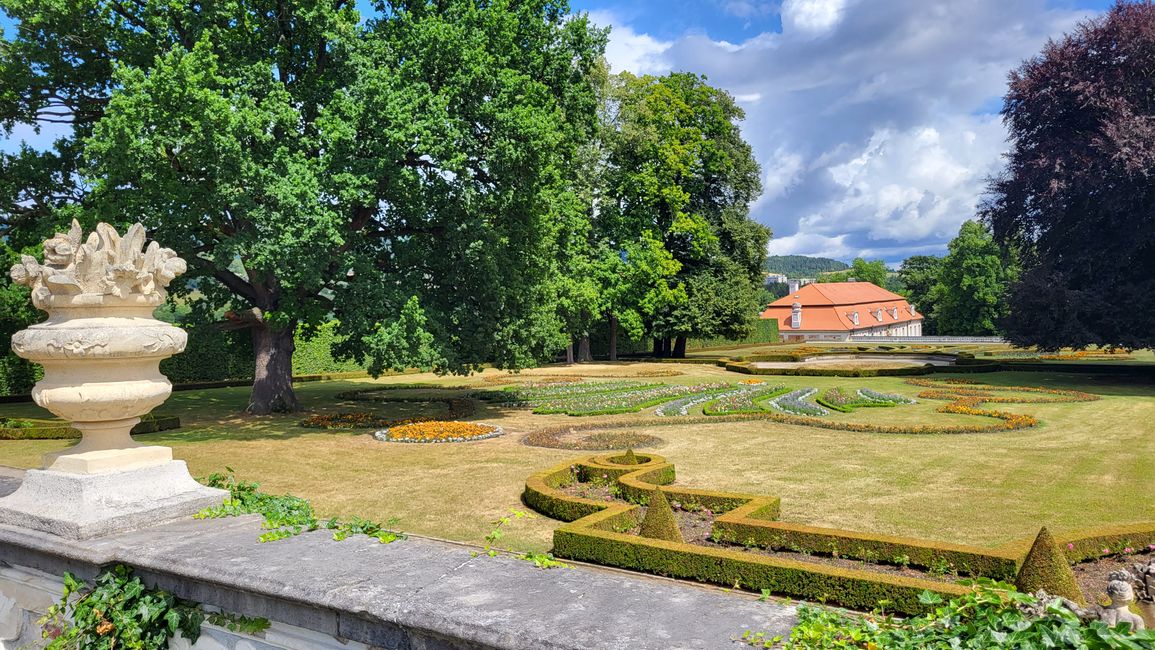
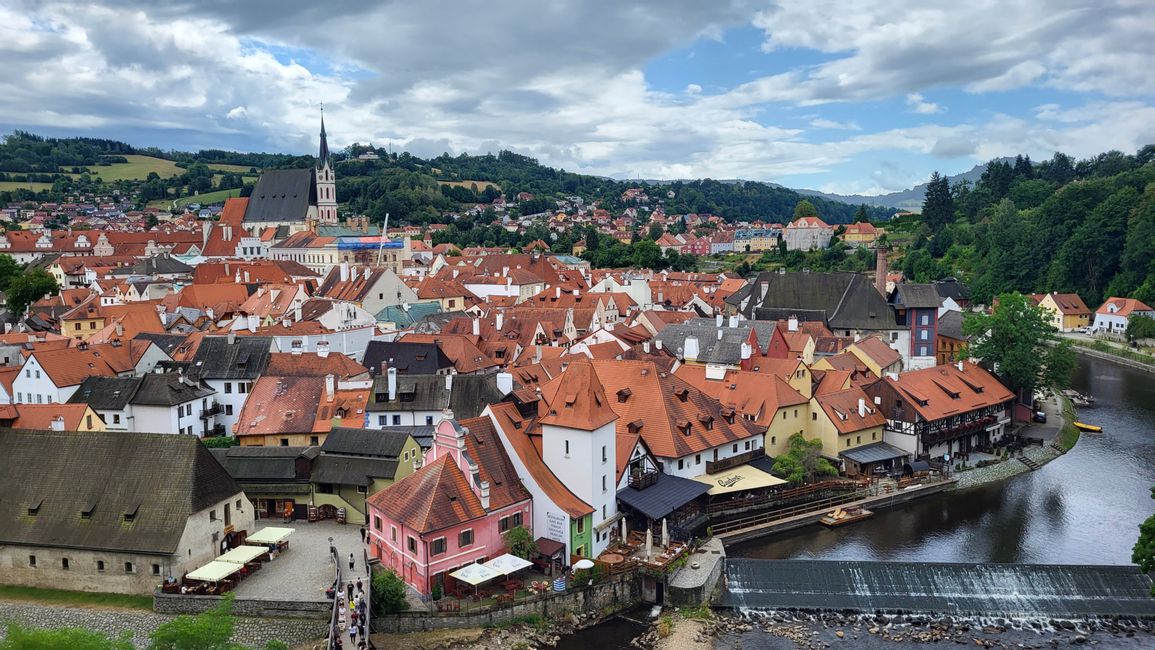
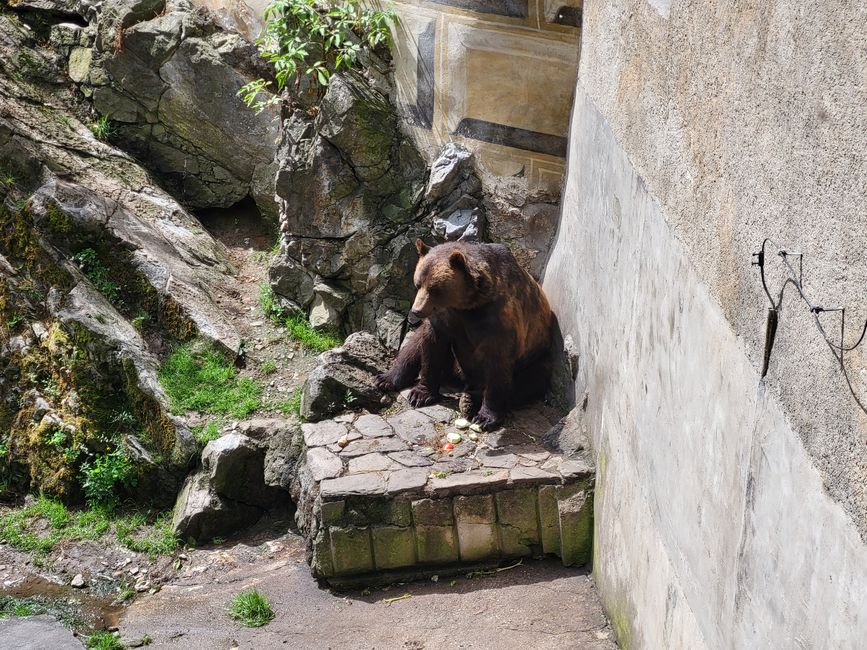
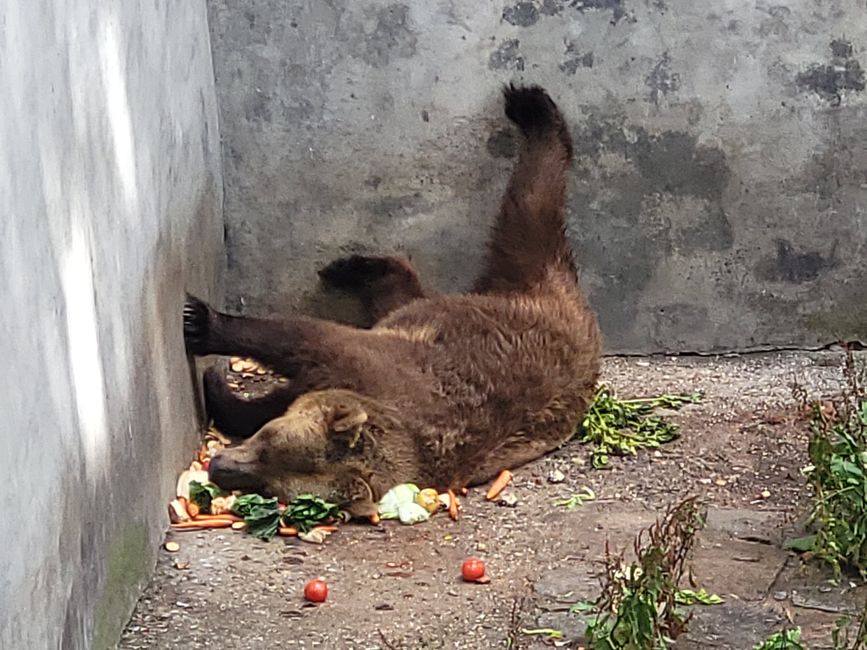
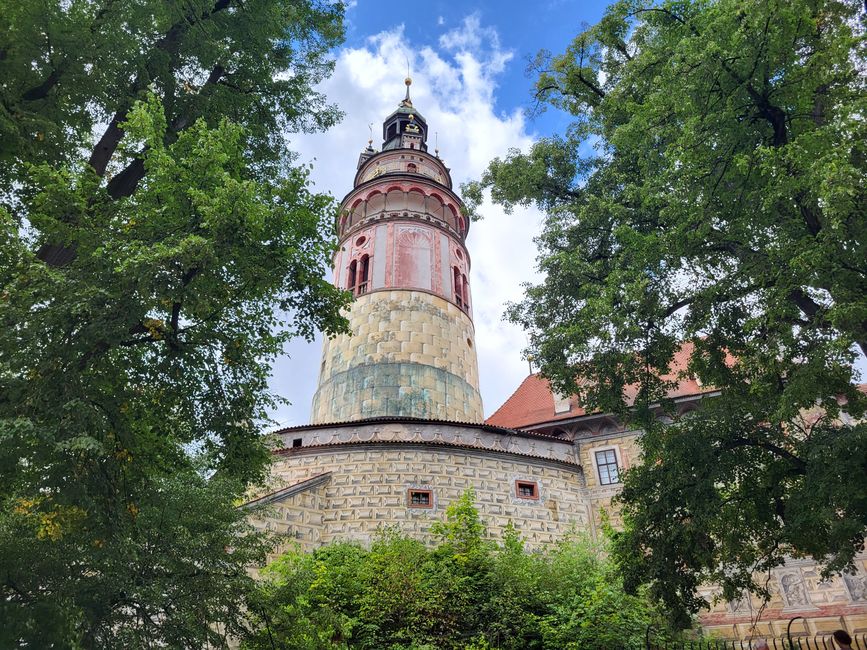
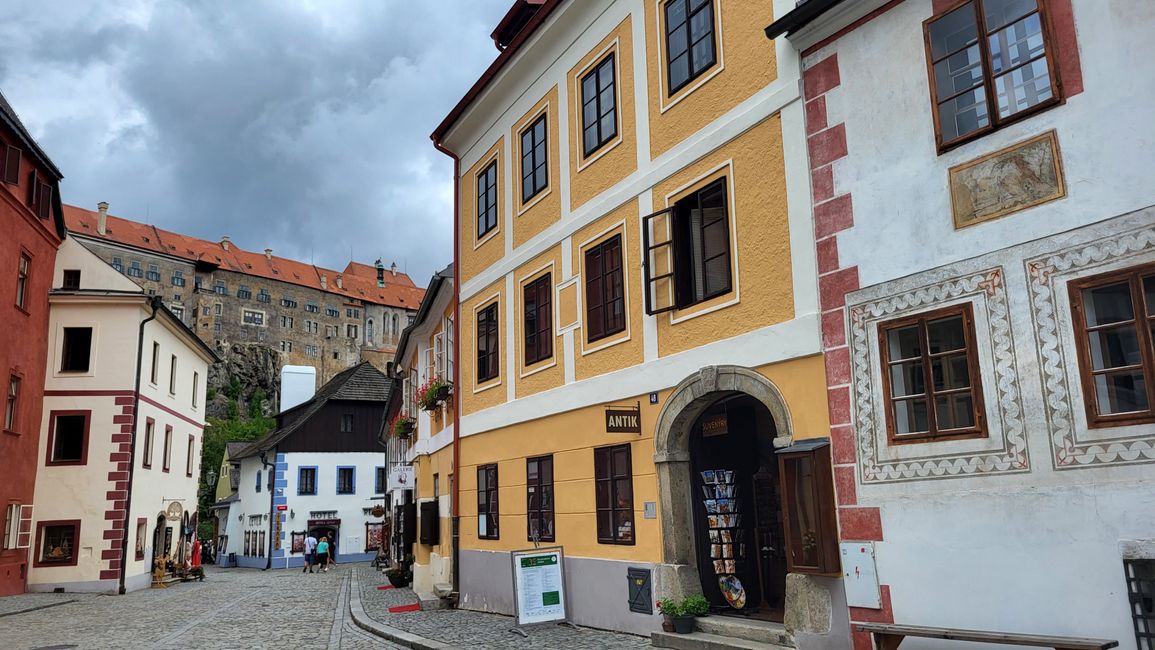
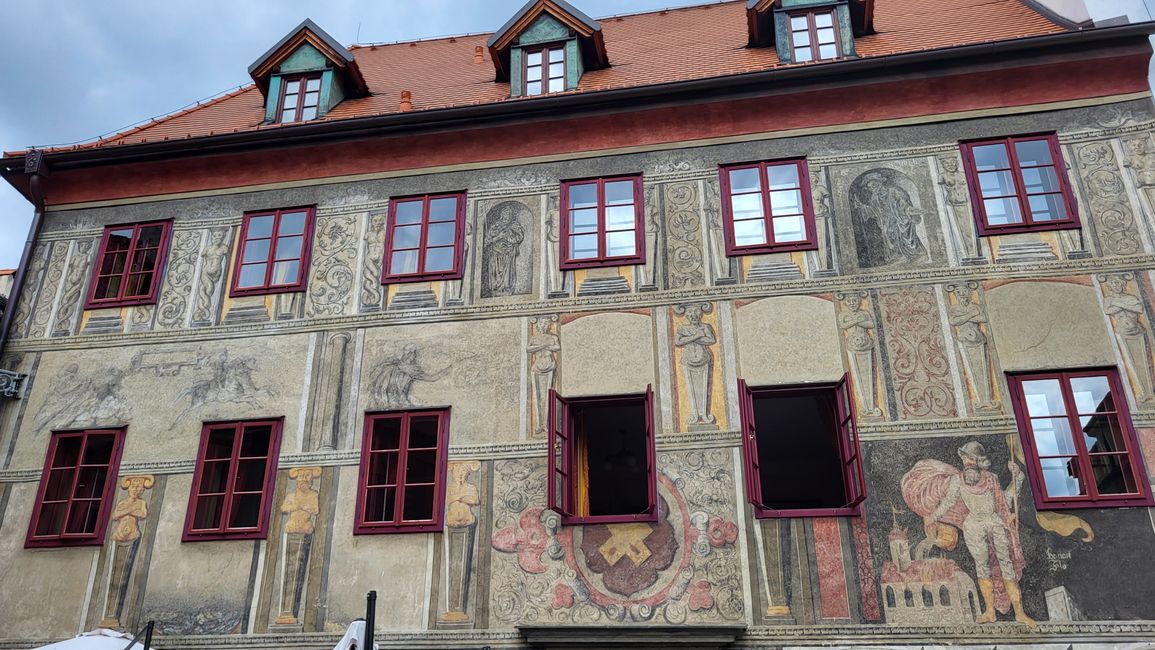
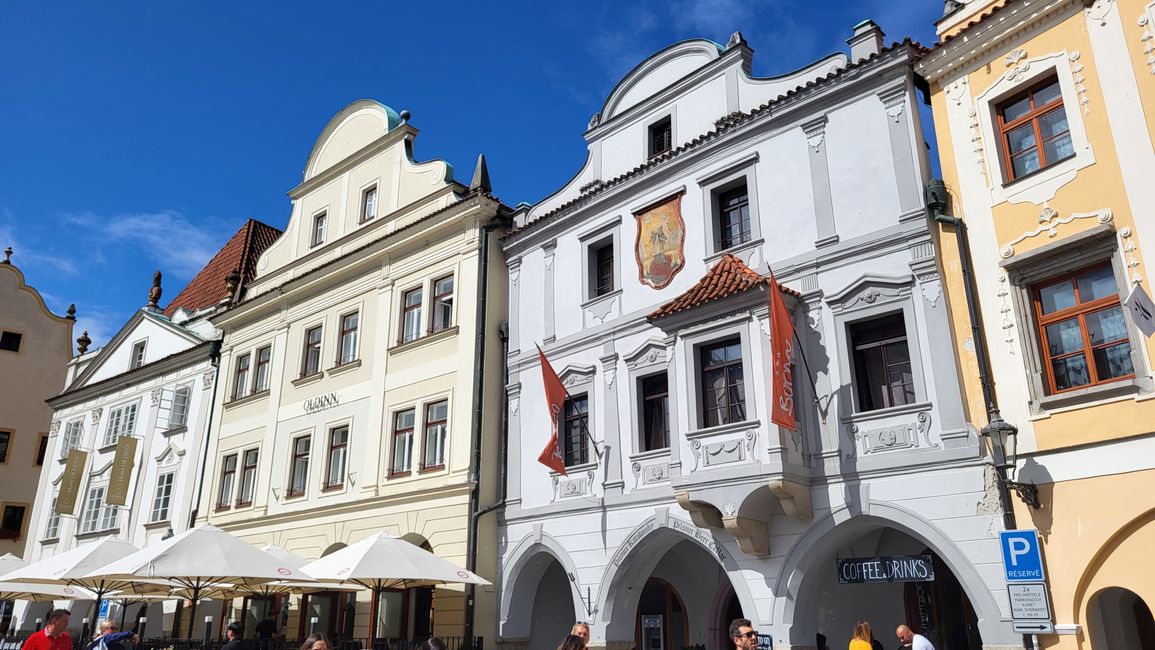
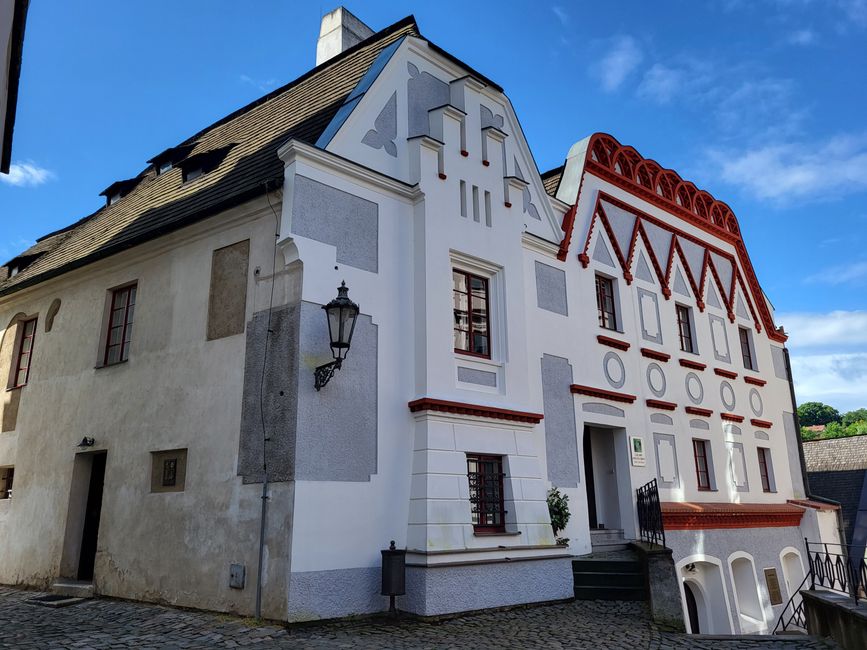
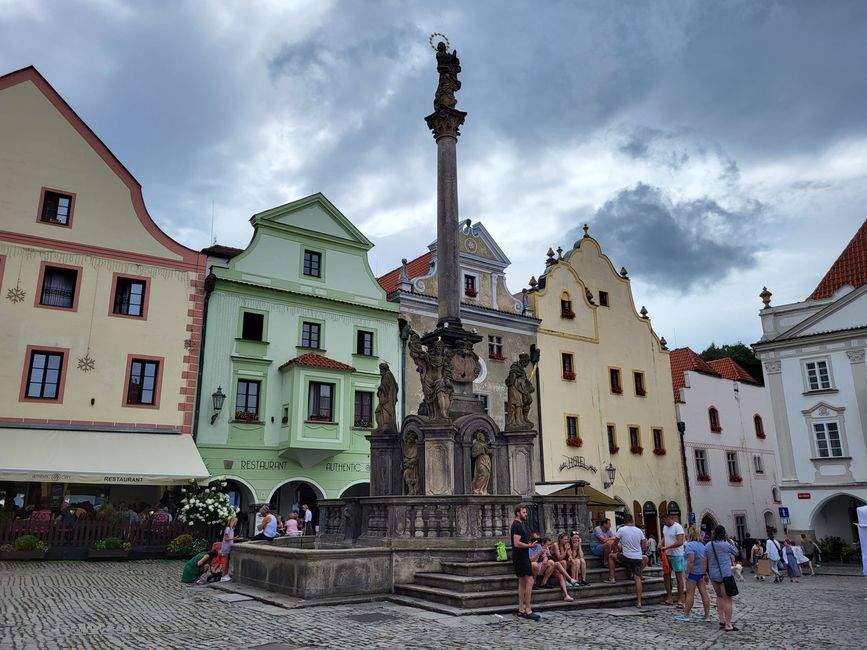
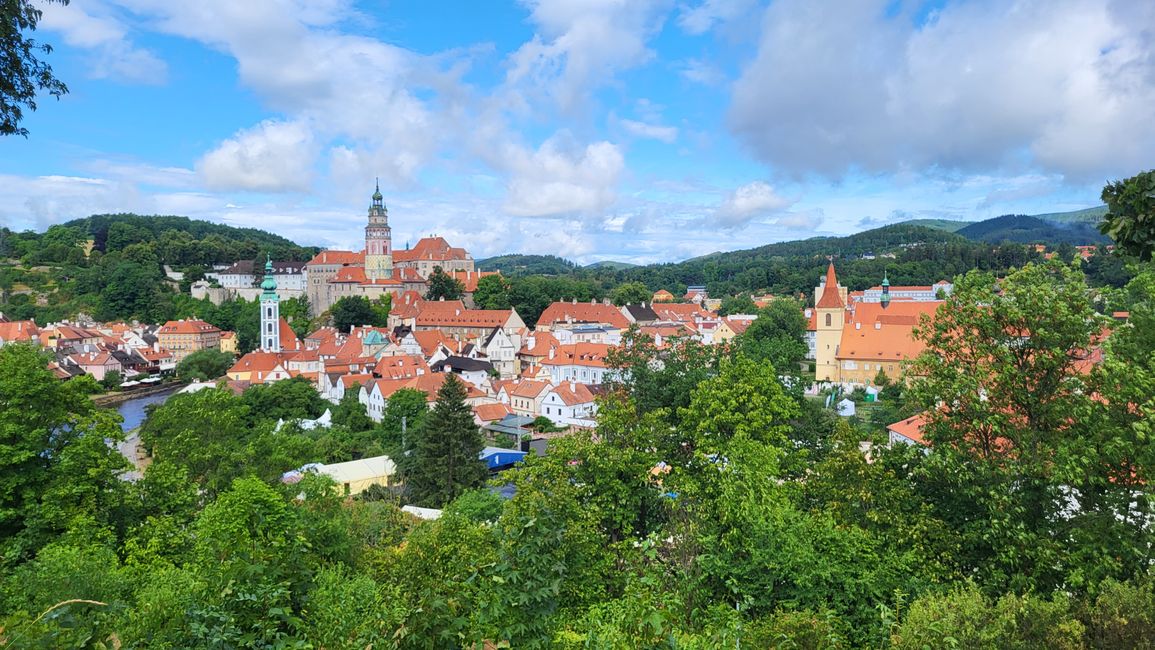
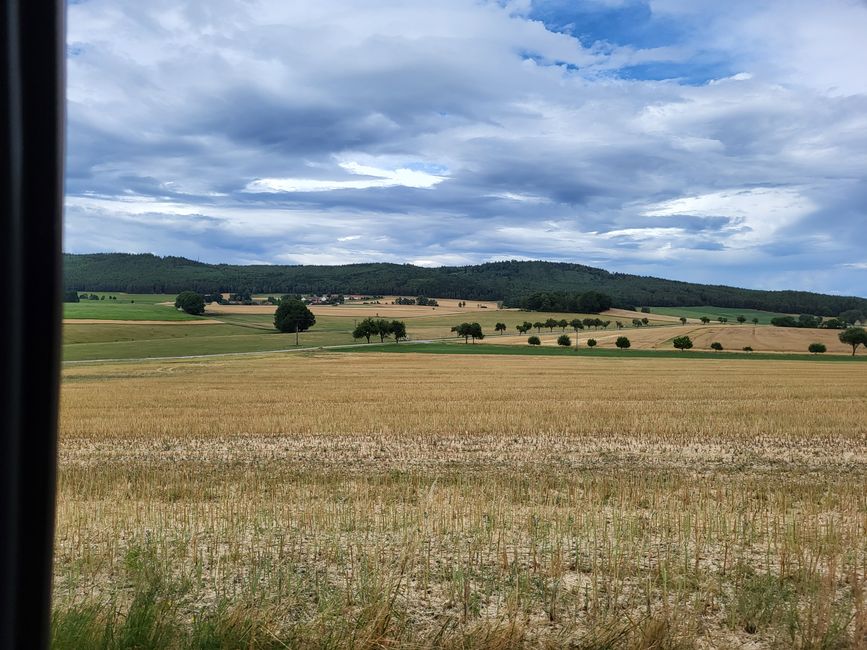
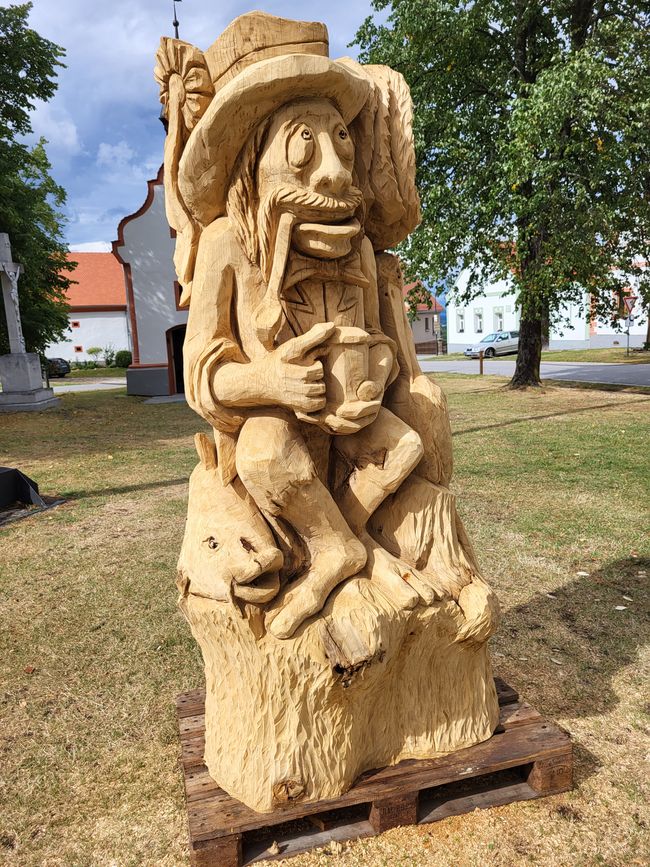
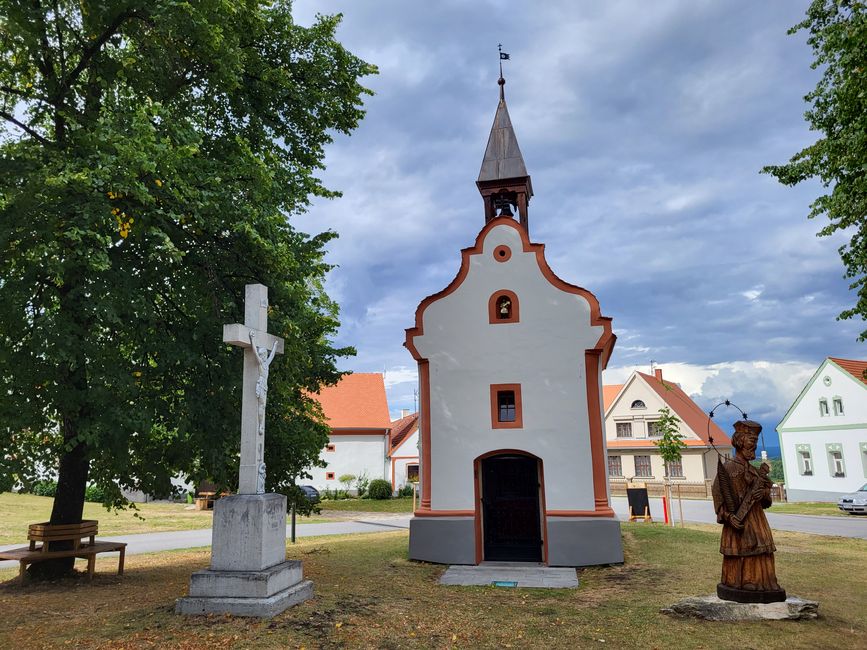
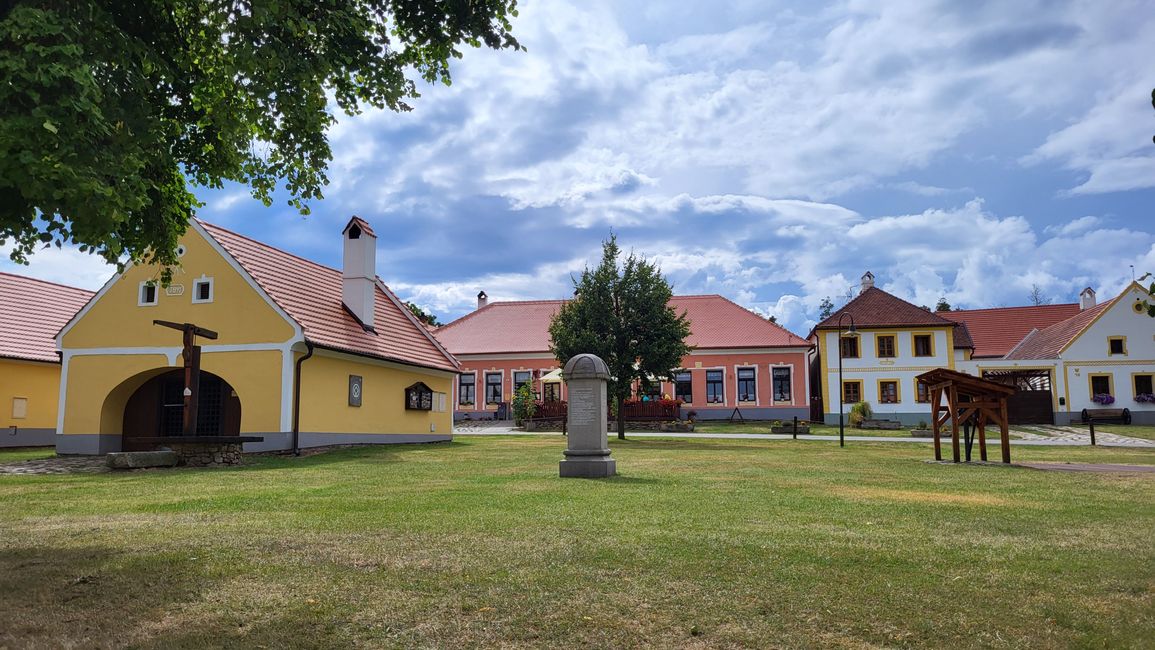
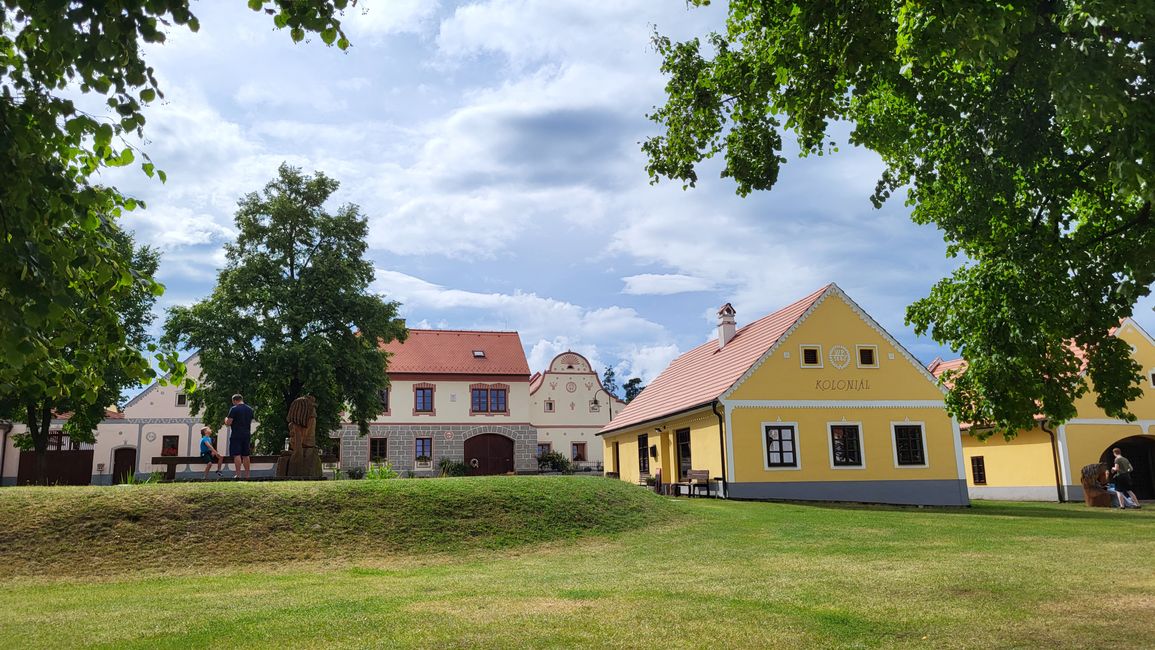
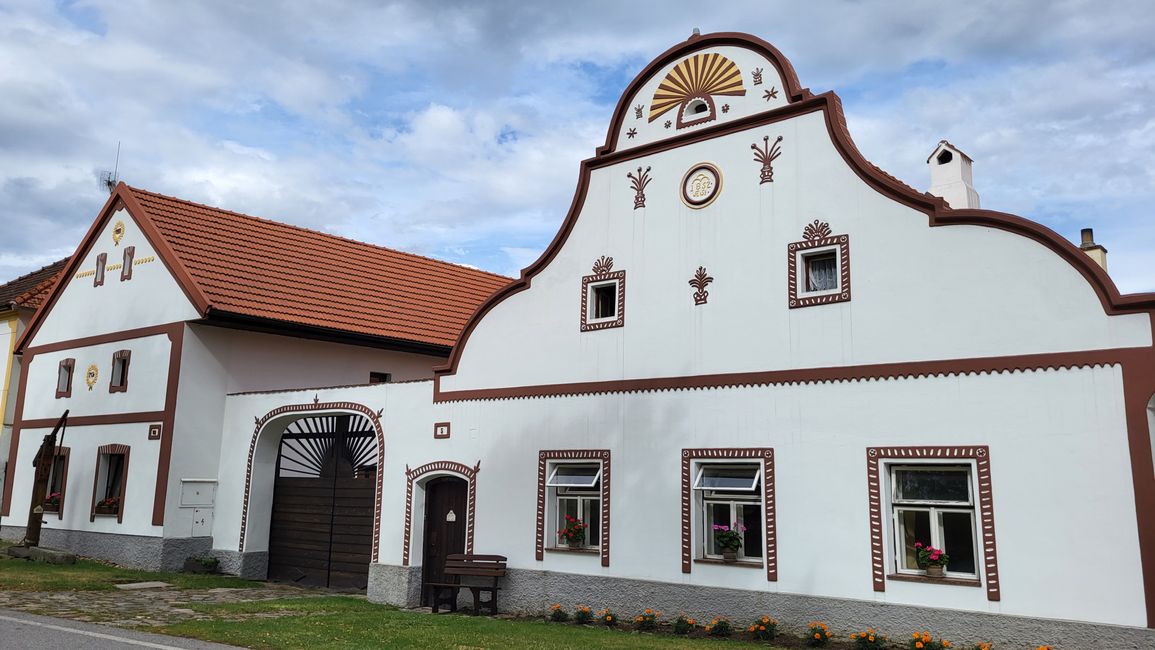
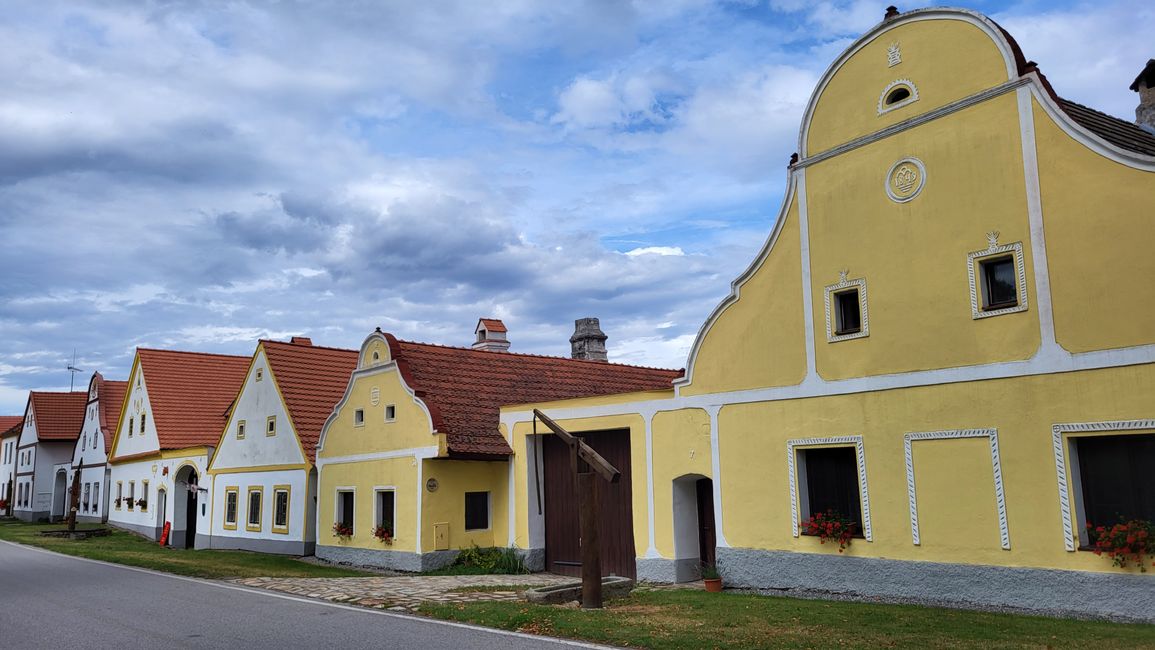
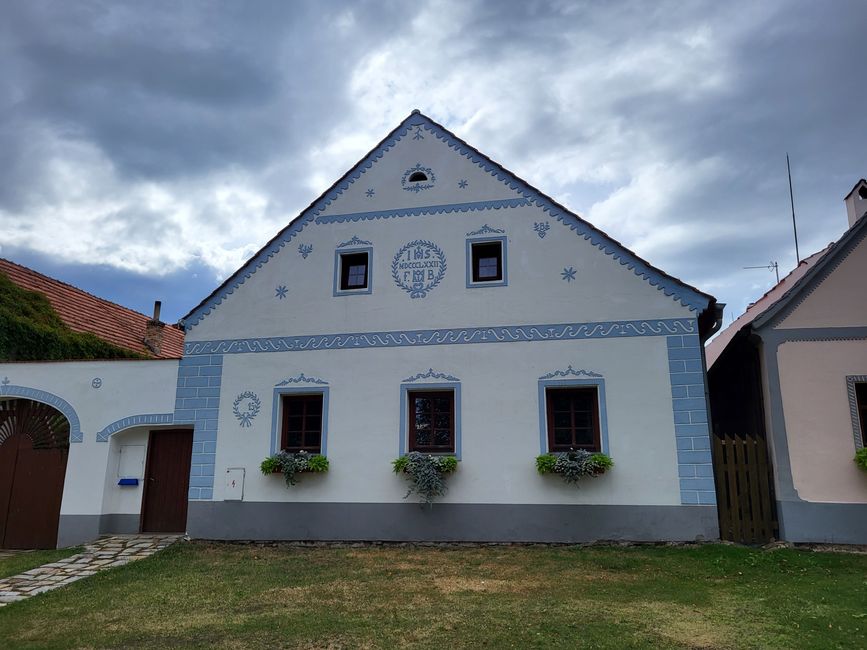
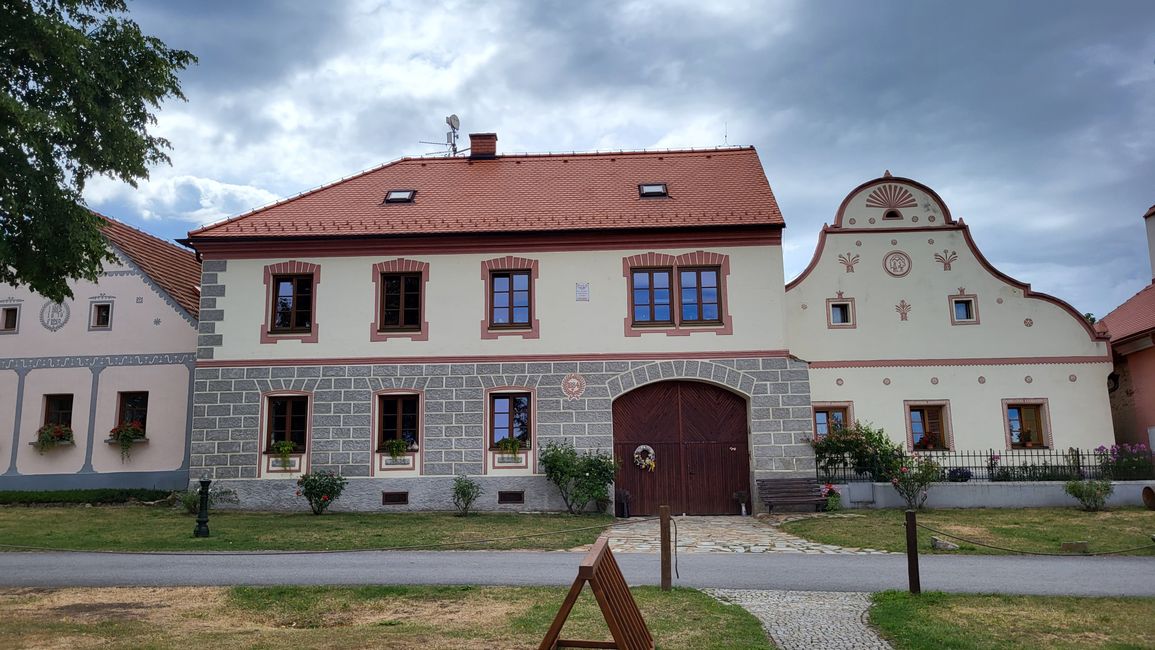
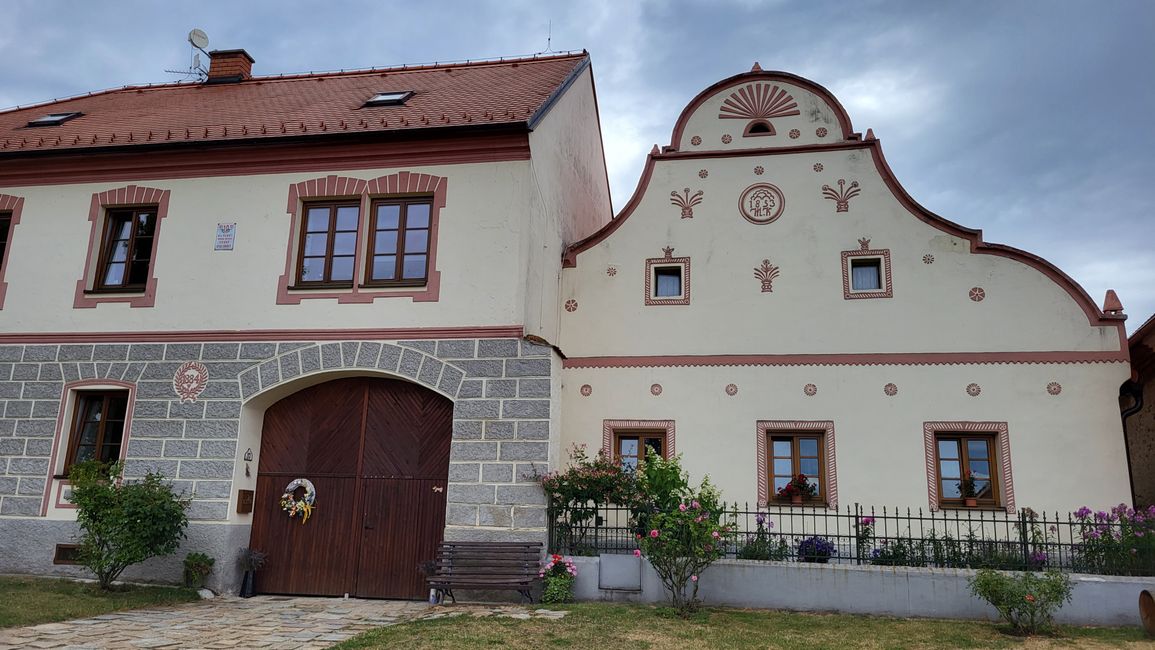
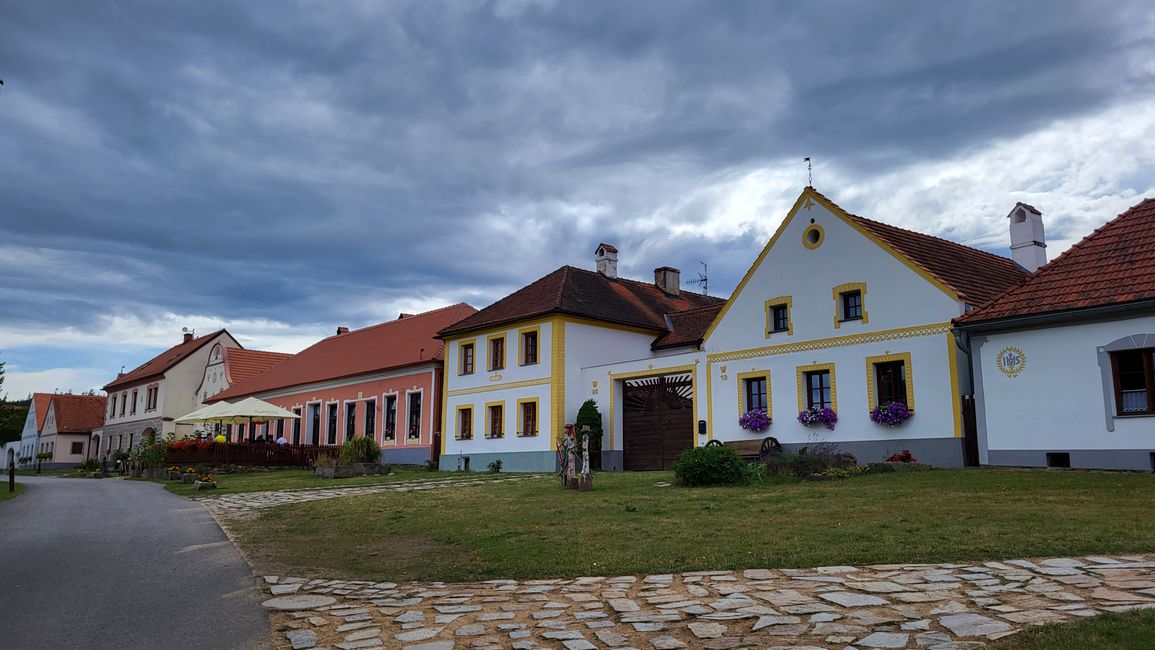
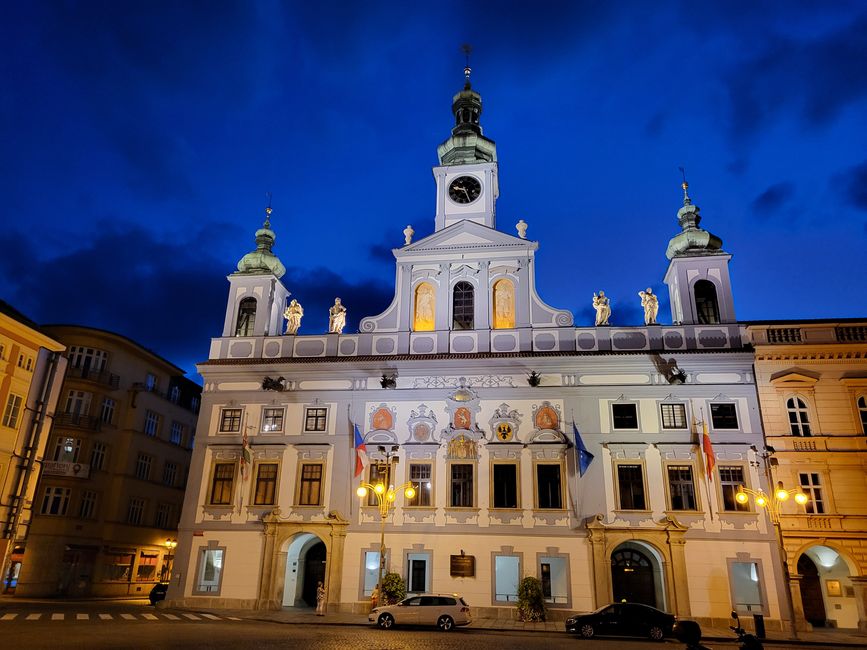
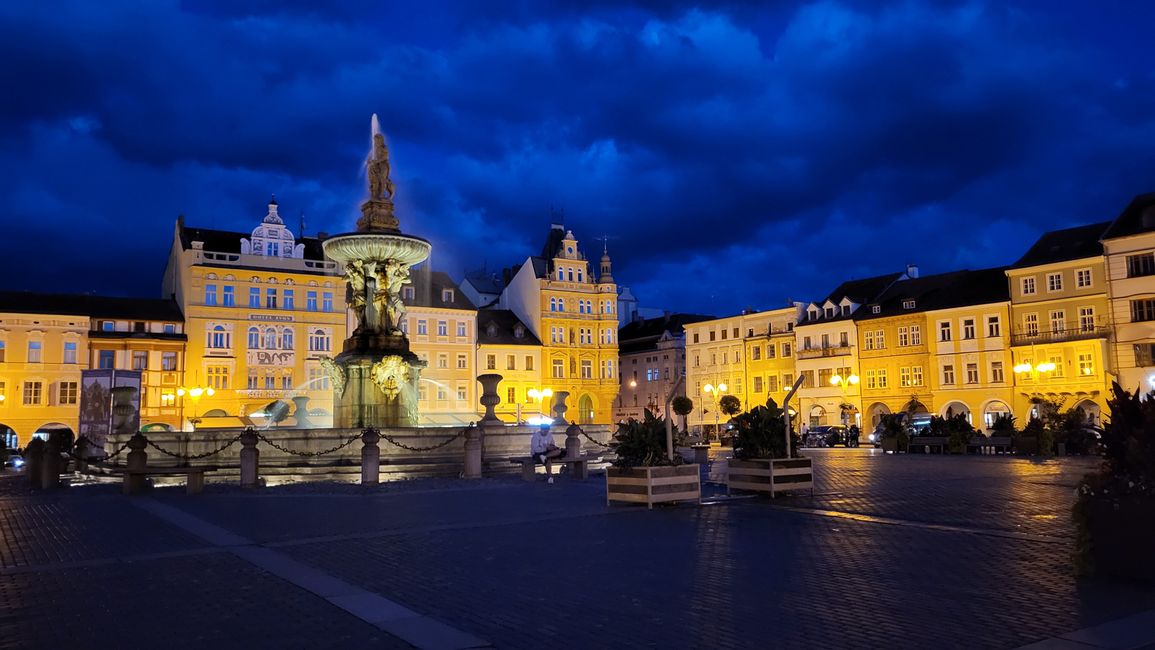
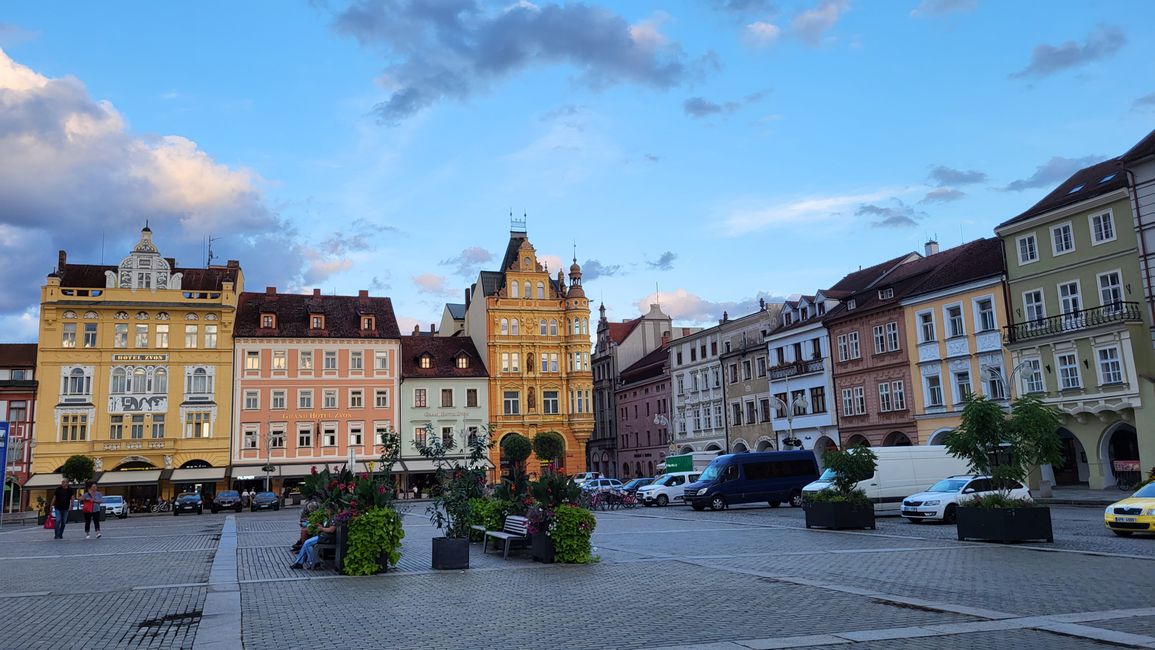
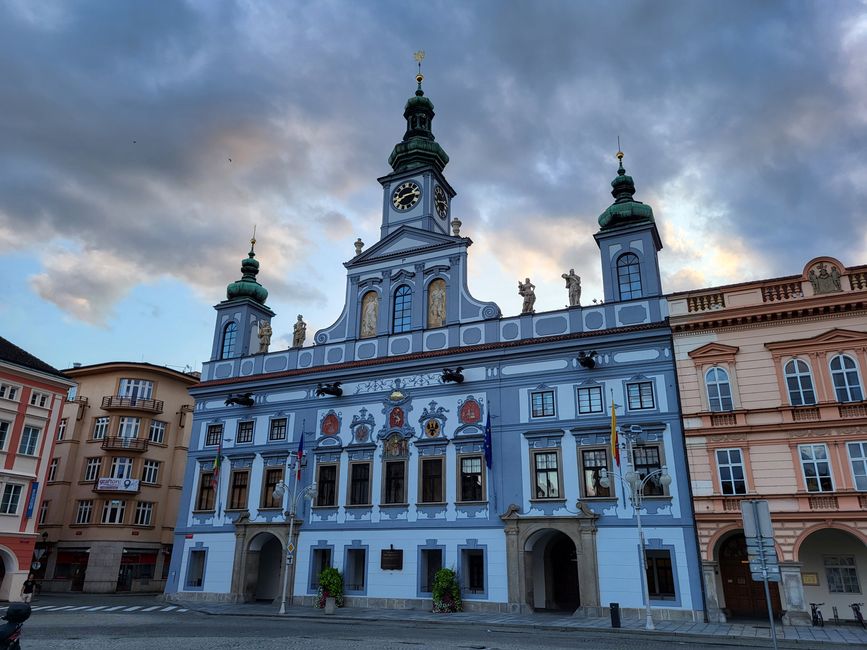
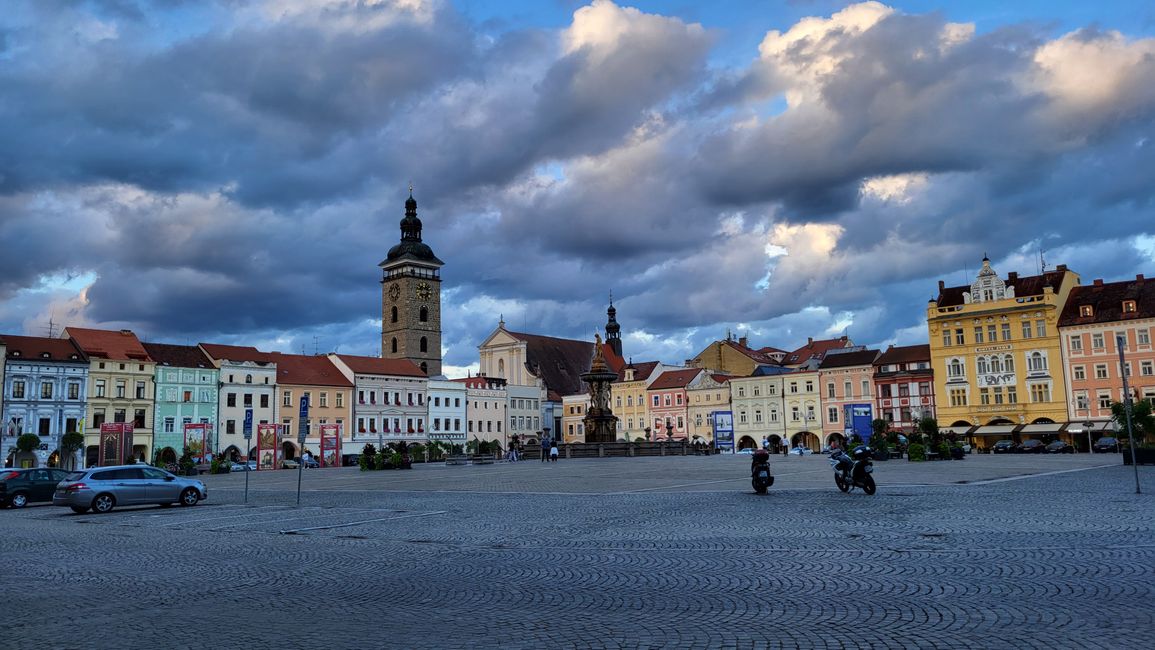
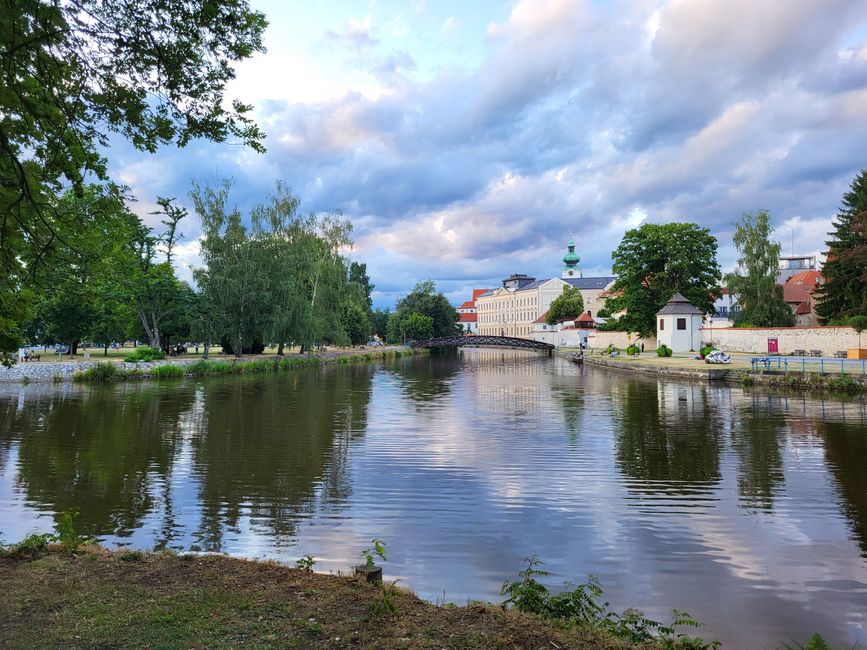
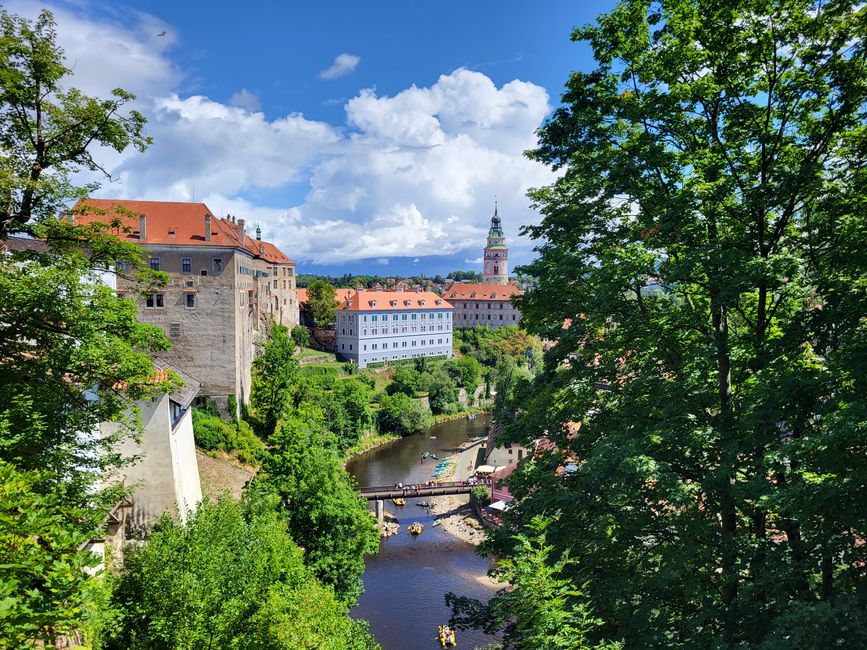
Feliratkozás a hírlevélre
We stayed in Budweis and took a day trip to Krumau (Cesky Krumlov) in the morning, according to our guidebook 'one of the most beautiful cities in the Czech Republic'.

Indeed, on our way from the parking lot to the old town, we were greeted by a beautiful view of the Renaissance town and the huge castle.
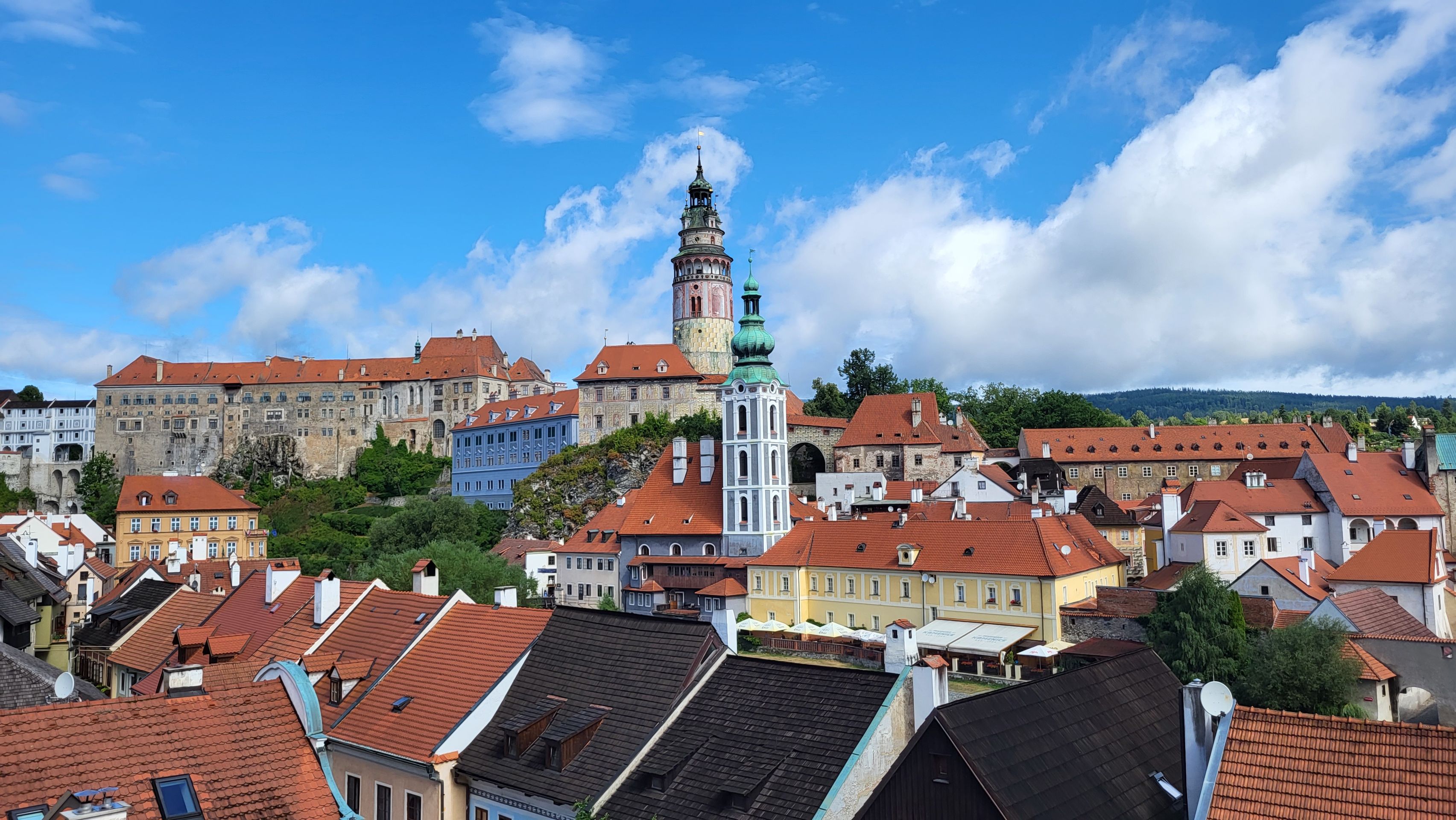
We walked to the center of the old town, the Ringplatz.
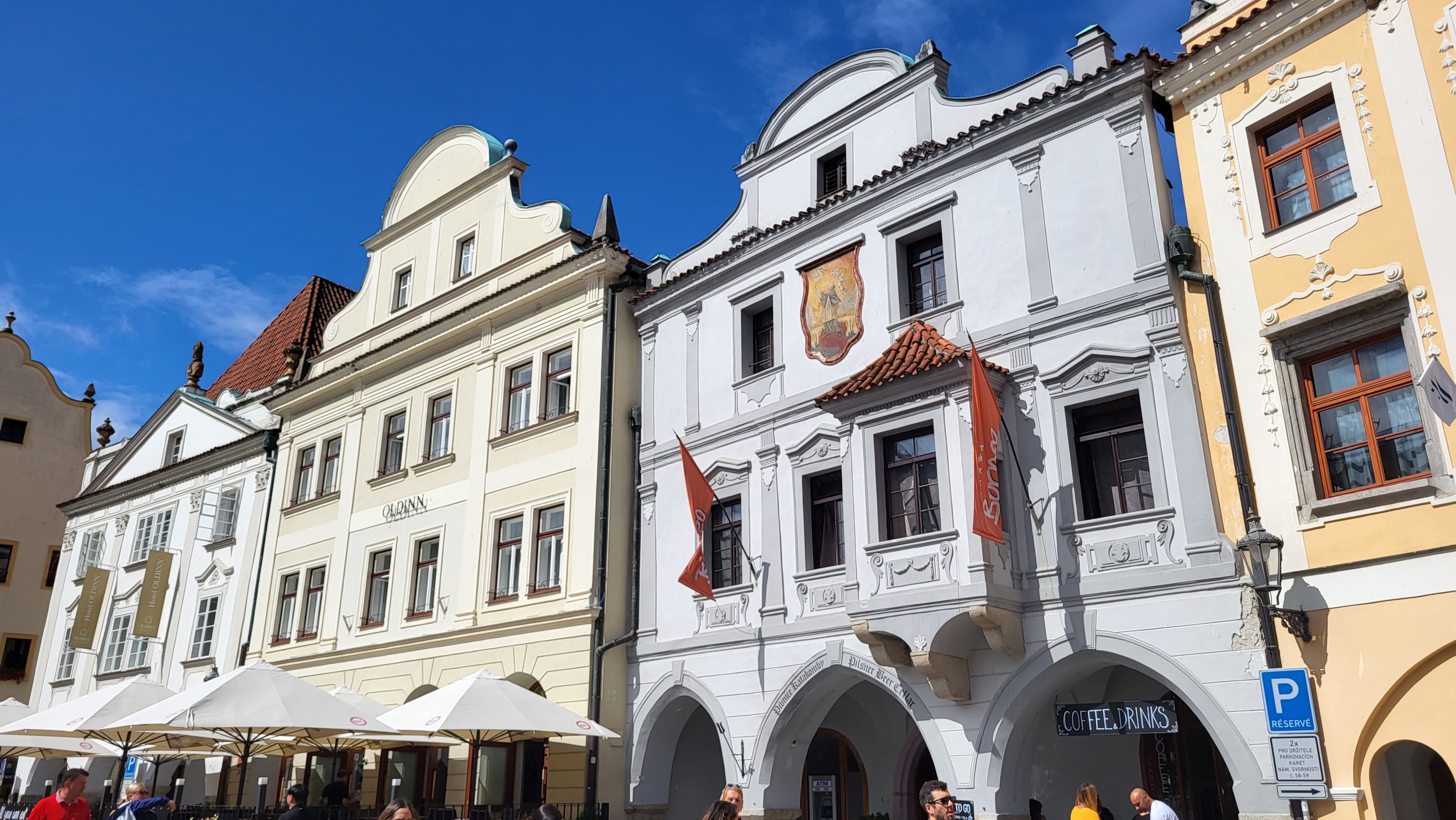
Actually, we wanted to go to the tourist information office there to get a map for our tour.
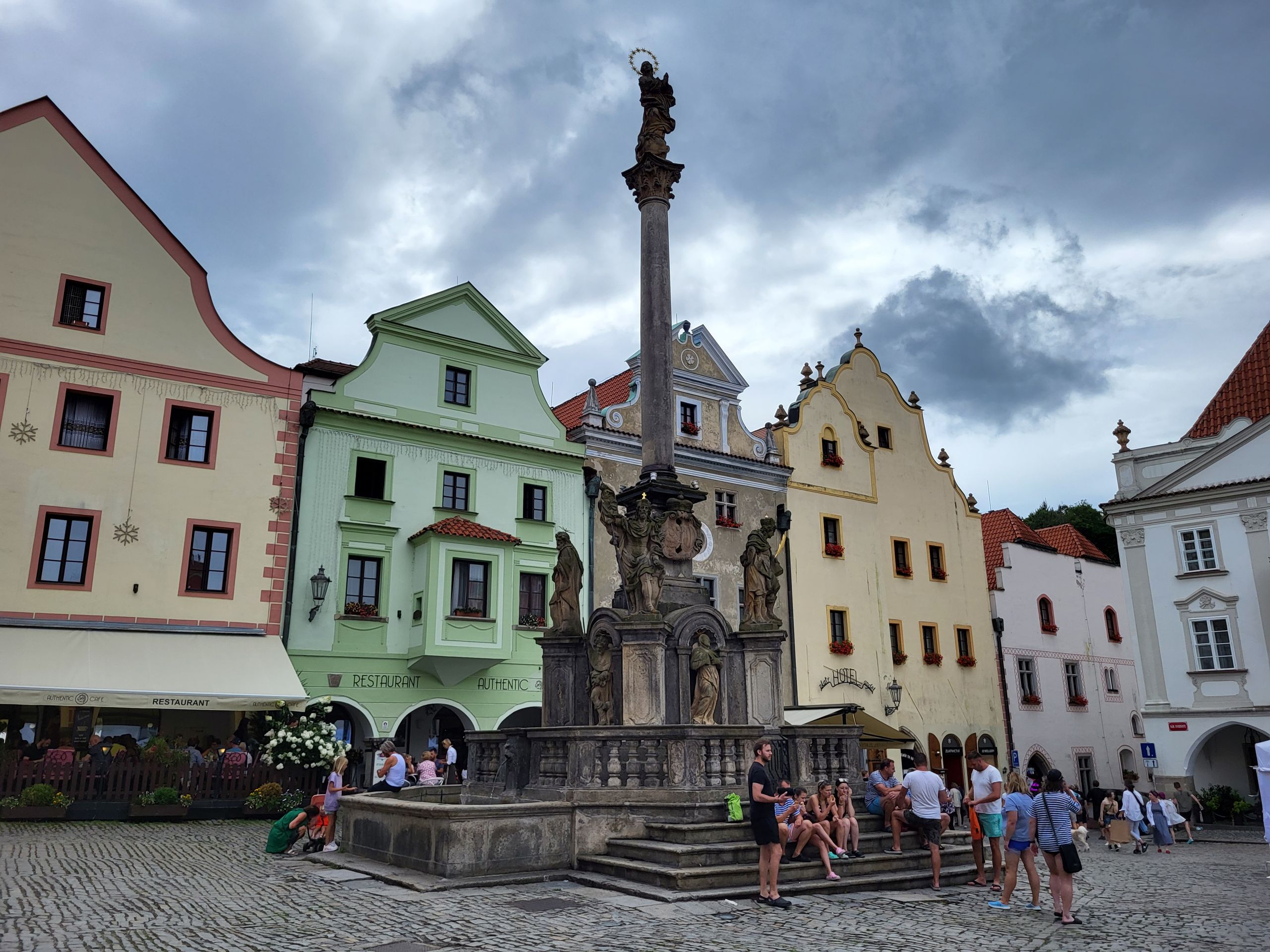
However, right in front of it, we saw a red umbrella with the inscription 'Free Tour'. We arrived just in time for an English-speaking city tour and spontaneously joined the very international group with a guide who was originally from Krumau.
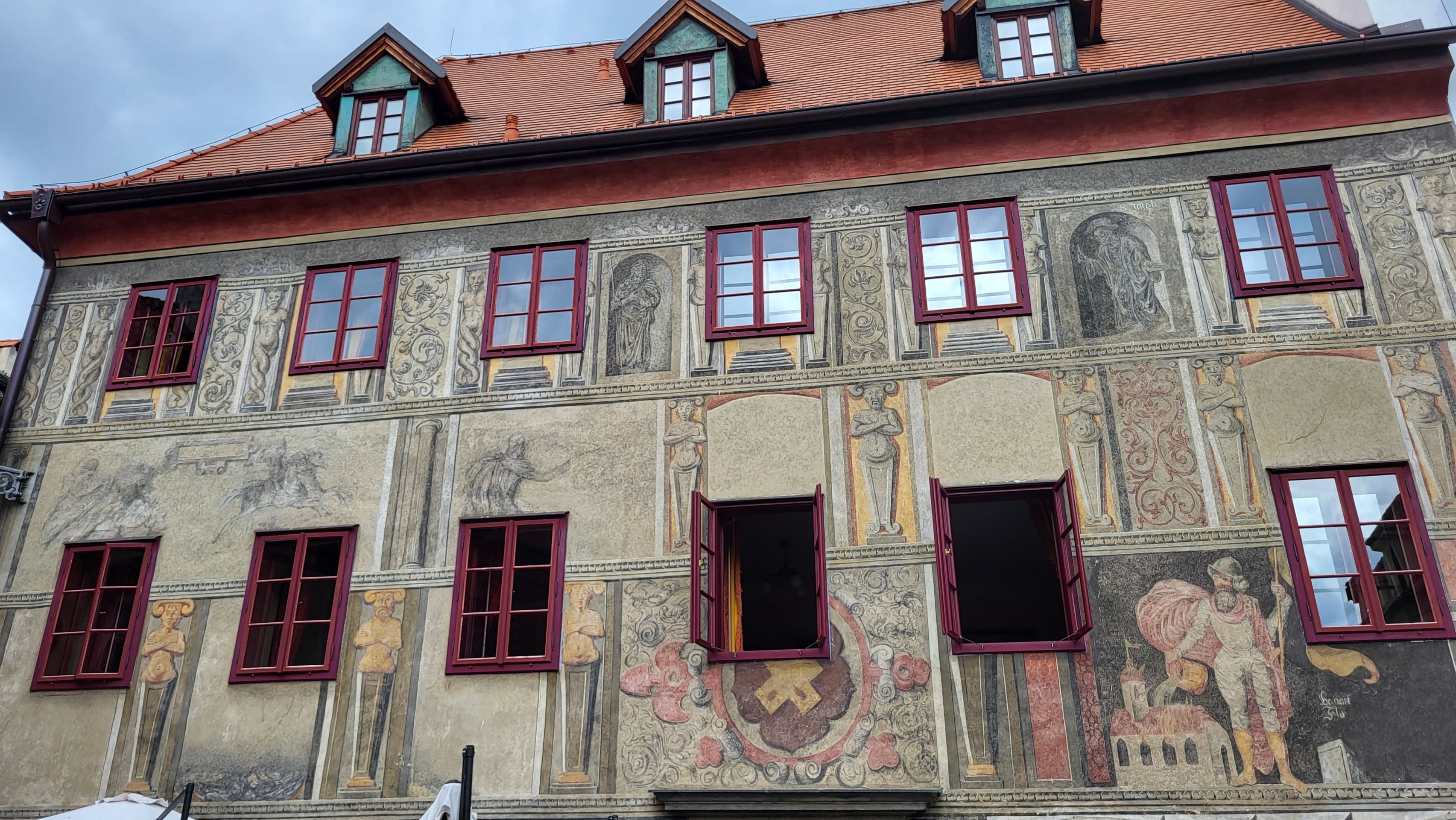
First, he showed us some beautiful corners of the old town, which was transformed into a Renaissance town in the 16th century. Wilhelm von Rosenberg fell in love with this style during his trip to Italy and had his residence and the surrounding city rebuilt.
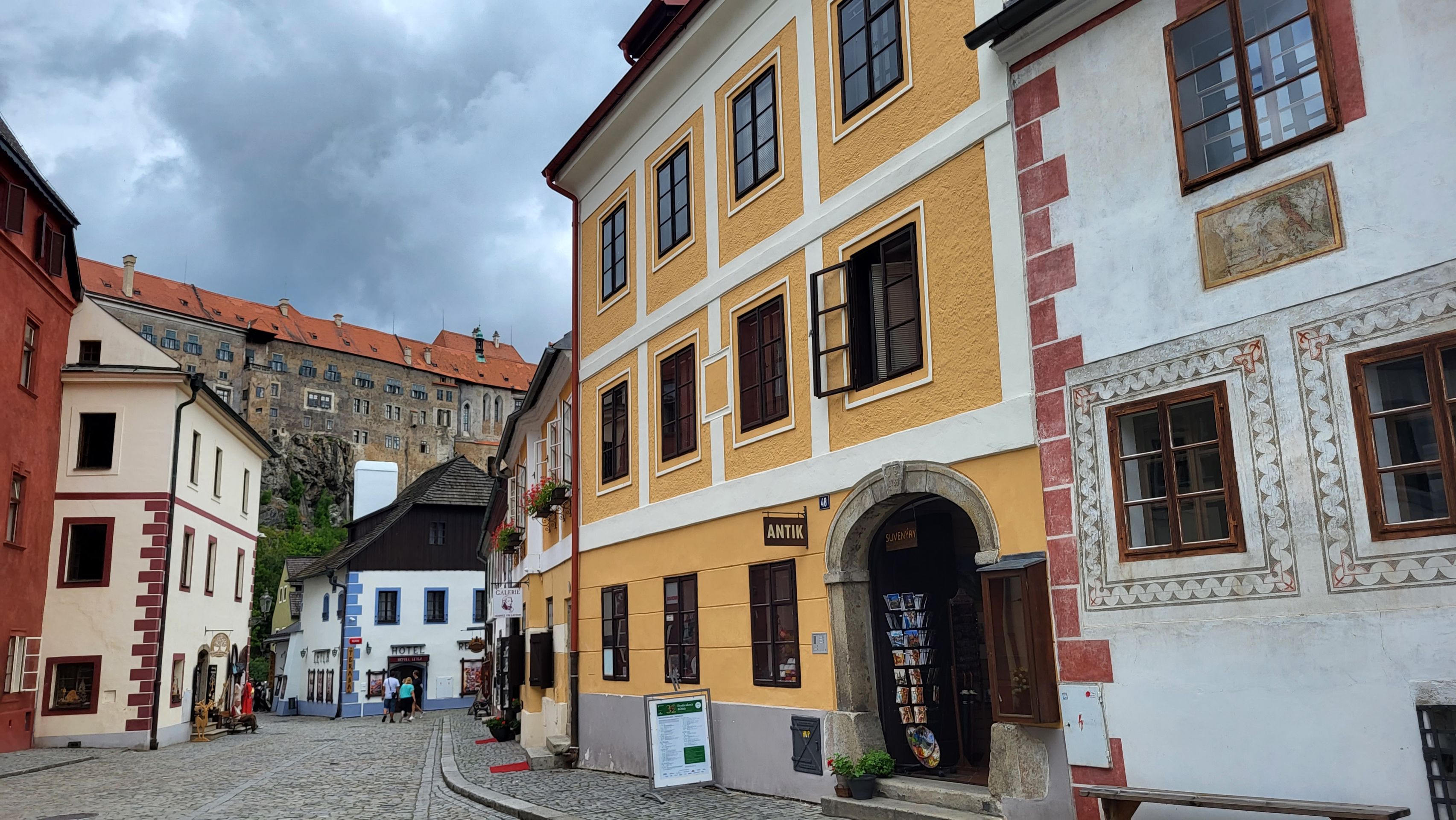
In 1602, the now highly indebted Rosenberg family had to sell the city and the castle. It initially became the property of the Habsburg Emperor, who later gave it to the Eggenberg family.
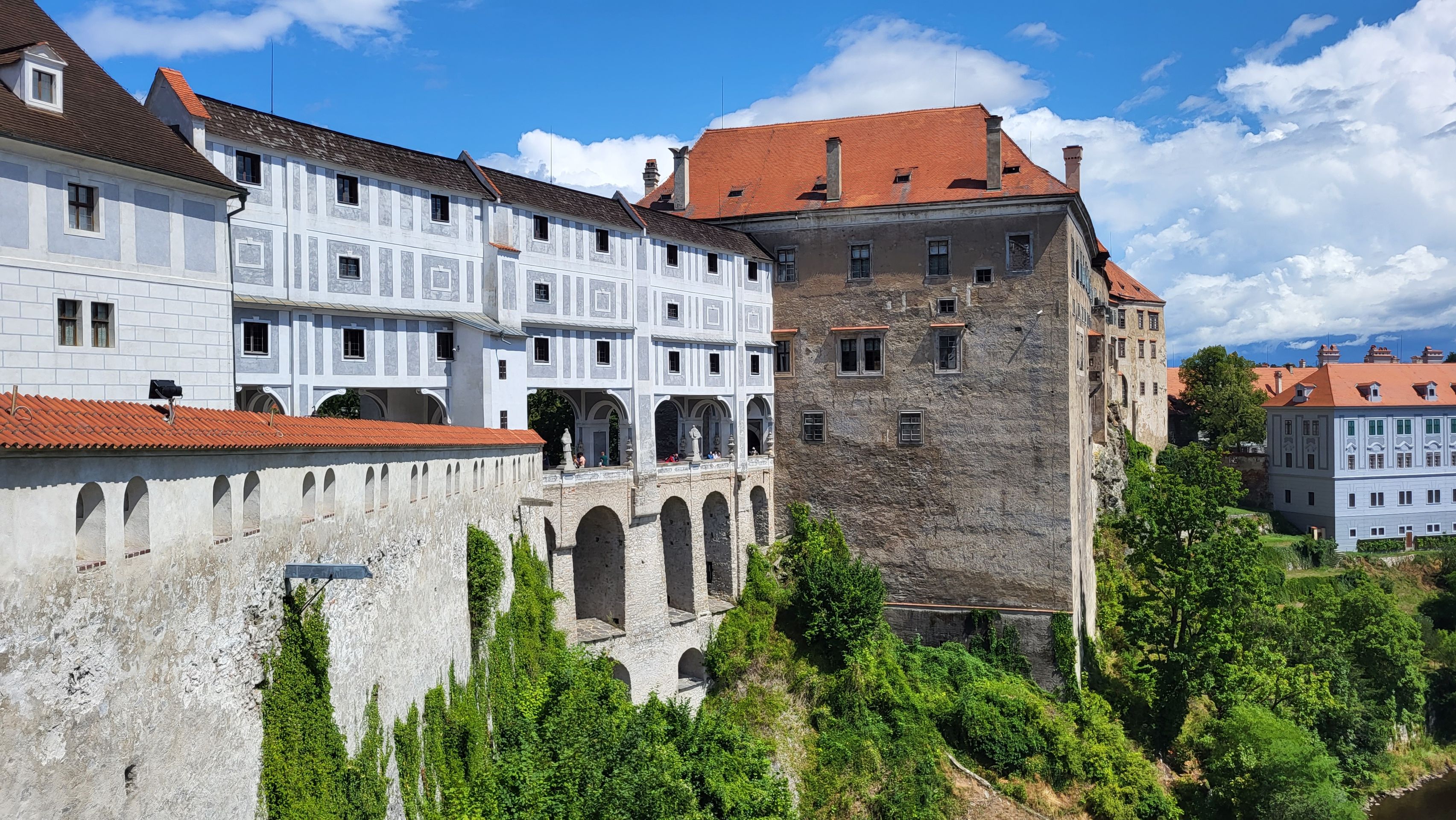
While our tour guide was telling us all this, we walked to the castle grounds.
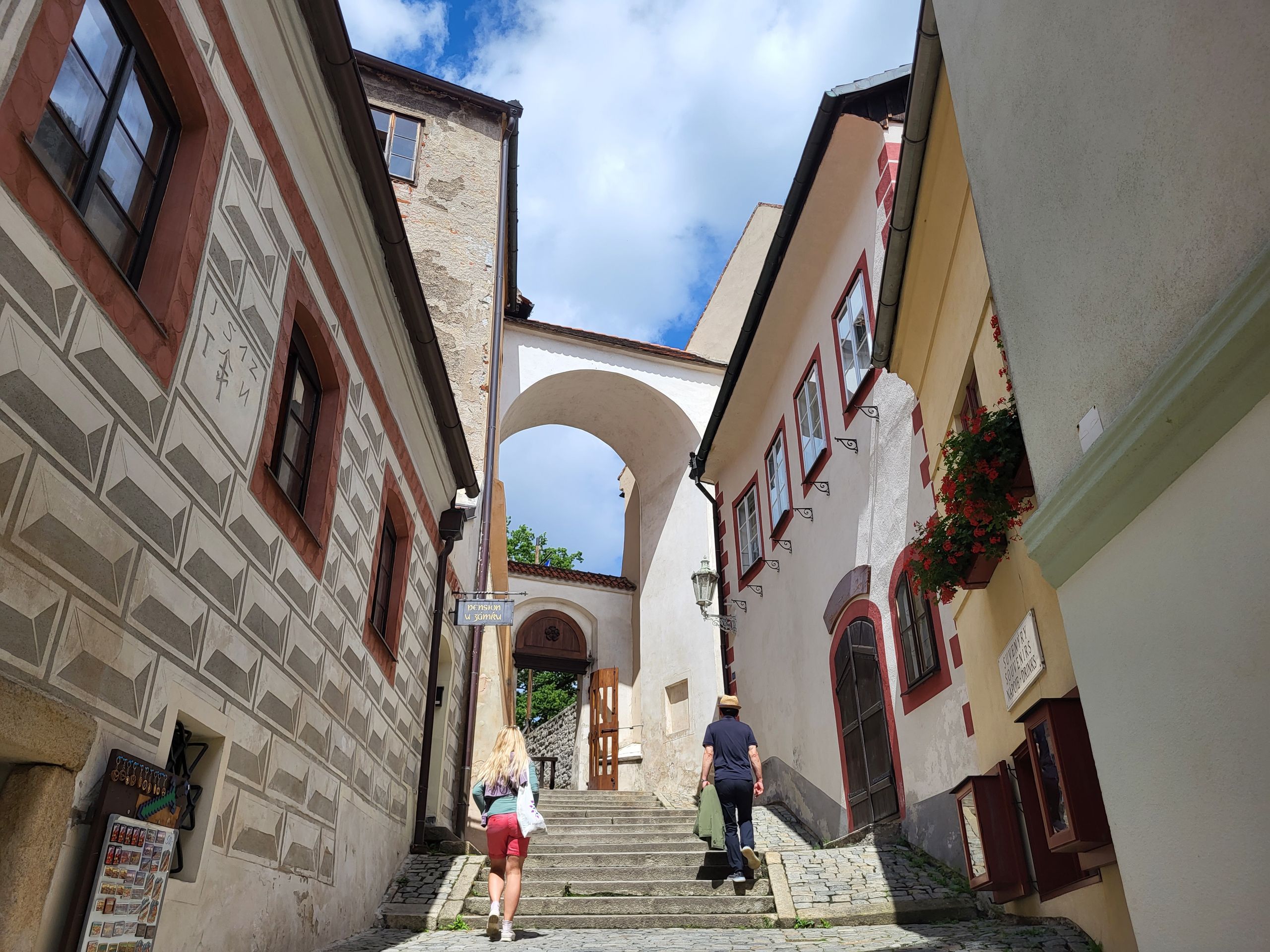
In the moat of the castle, there are some bears, which are enthusiastically observed by visitors to the castle.
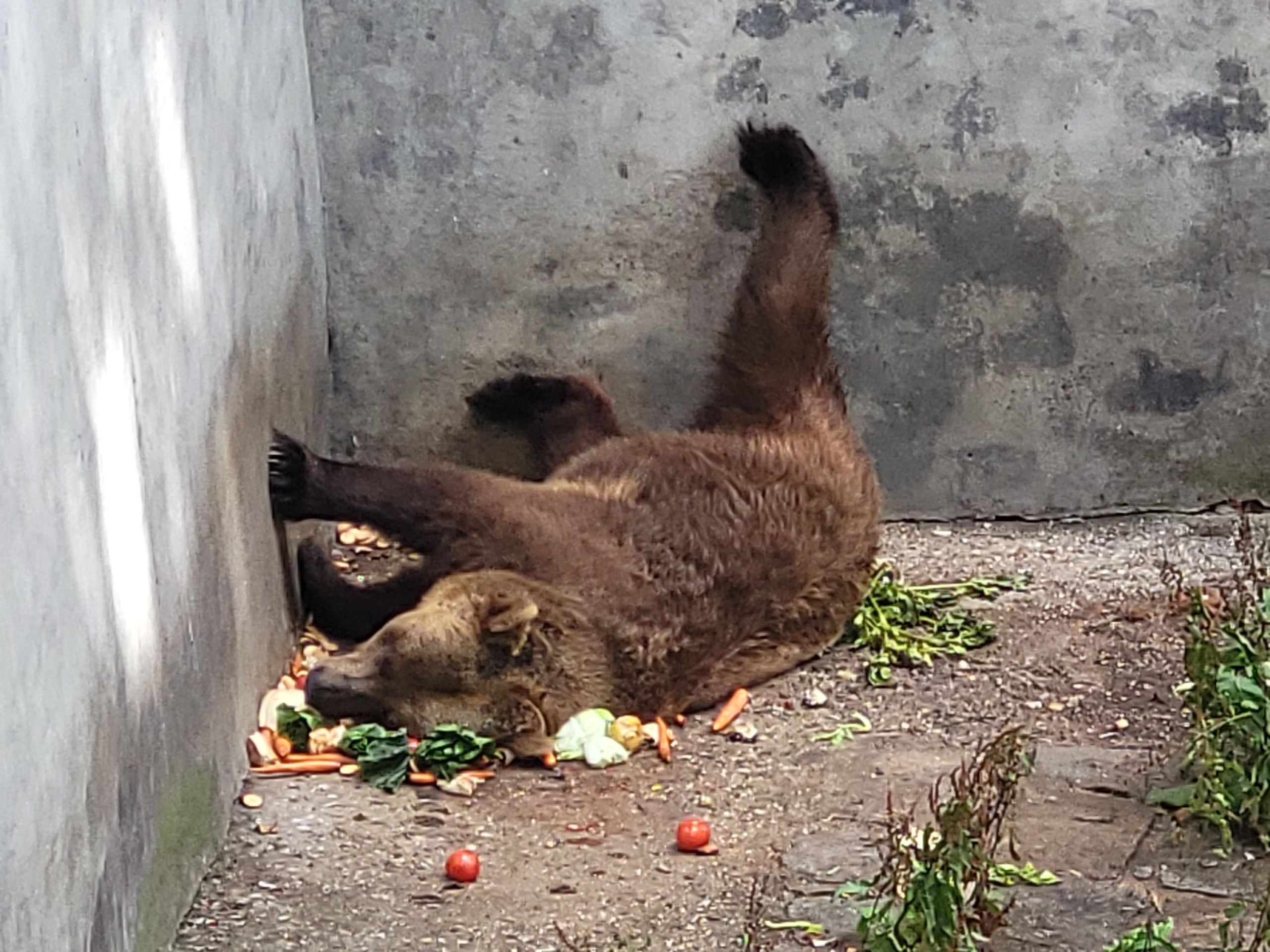
The complex consists of an older Lower Castle and an Upper Castle.
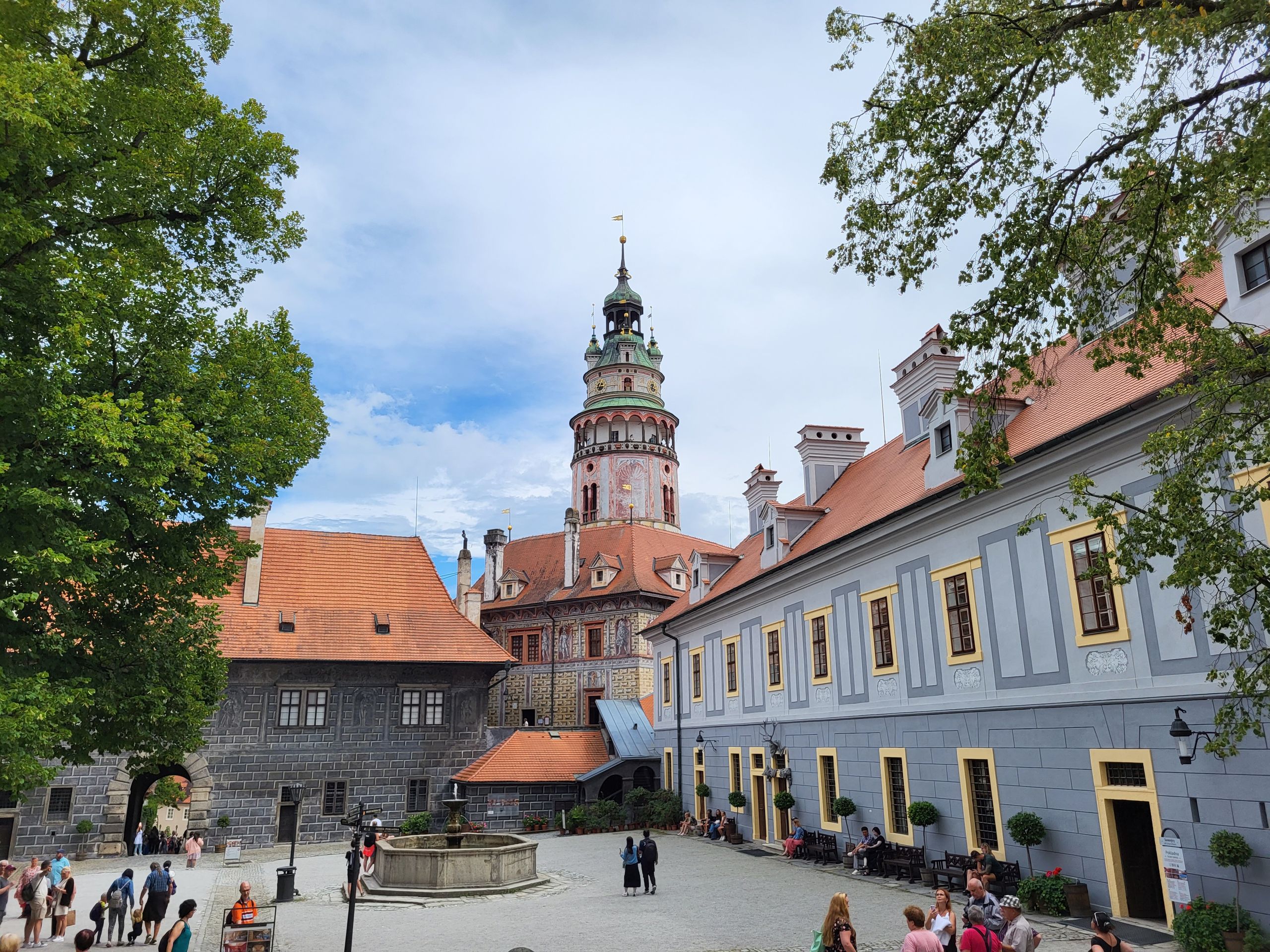
A baroque theater is also part of the complex. You can reach it via a multi-storey castle bridge.

Behind it is a baroque garden.
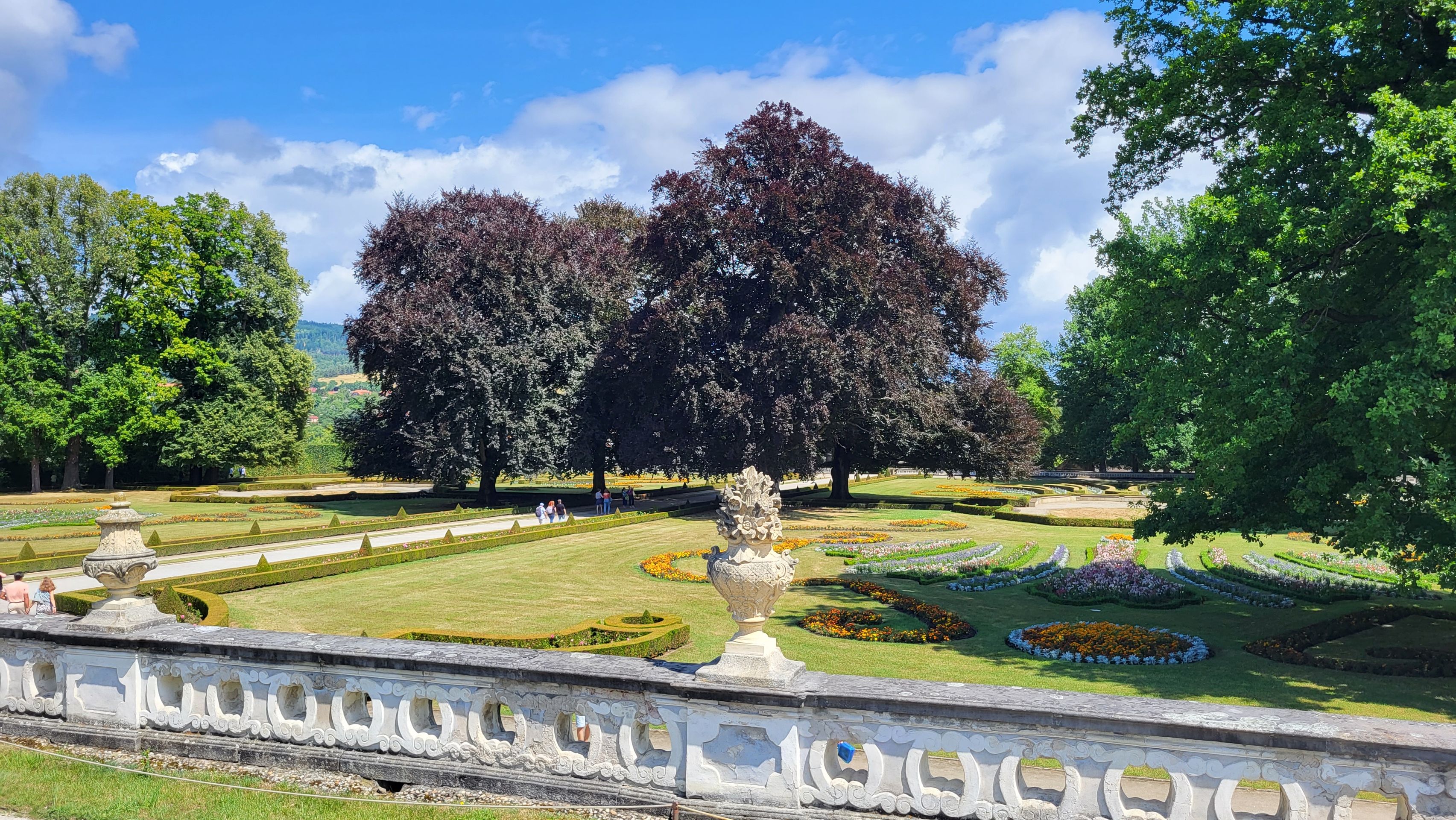
In the garden, there is also an open-air theater with a rotating auditorium for about 500 people, which was built in 1958.
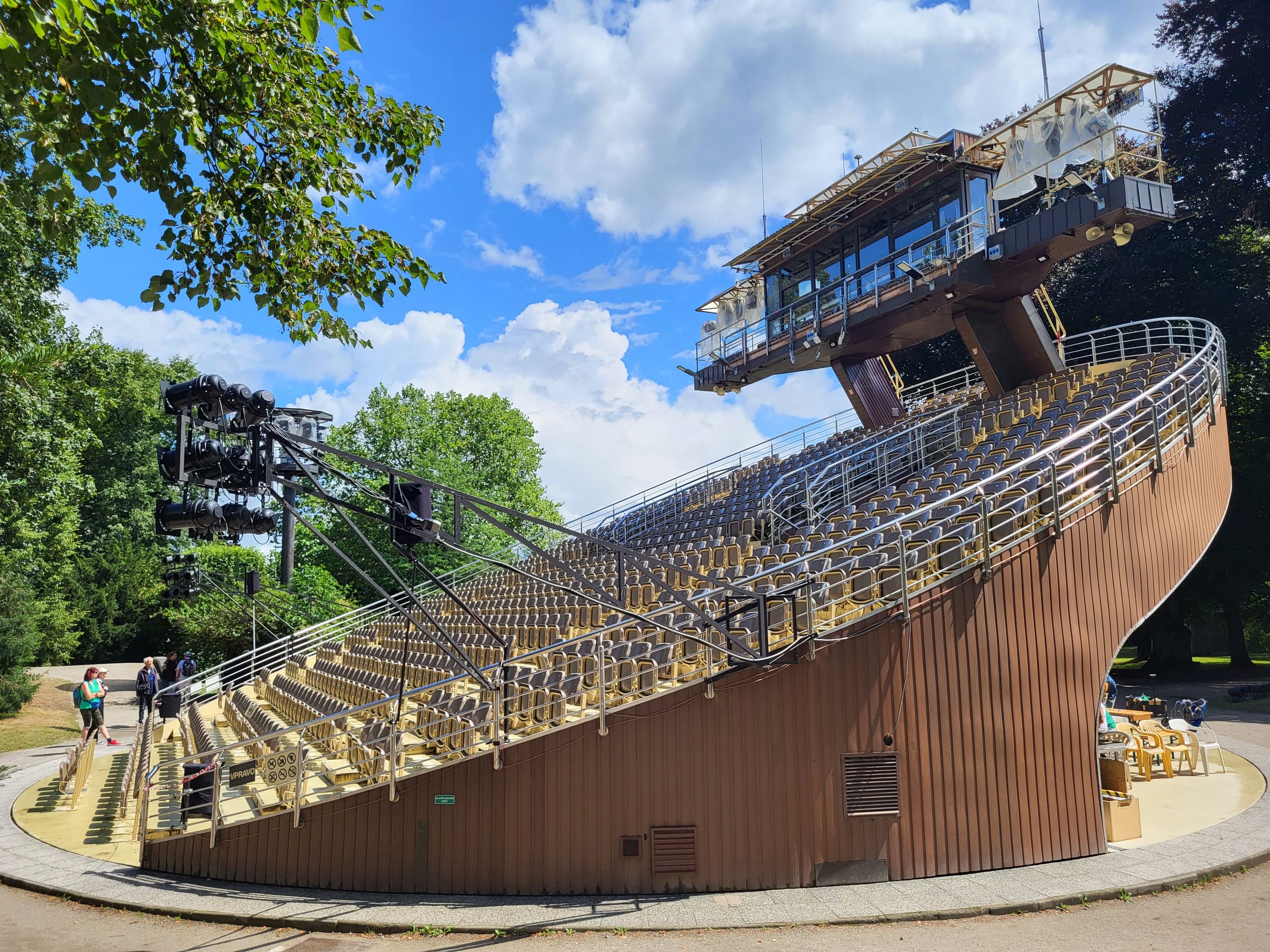
The stage is very popular with the audience, but not with UNESCO: Since 1992, Krumau with its old town and castle has been on the World Heritage List. However, the status could be revoked if the theater is not dismantled.
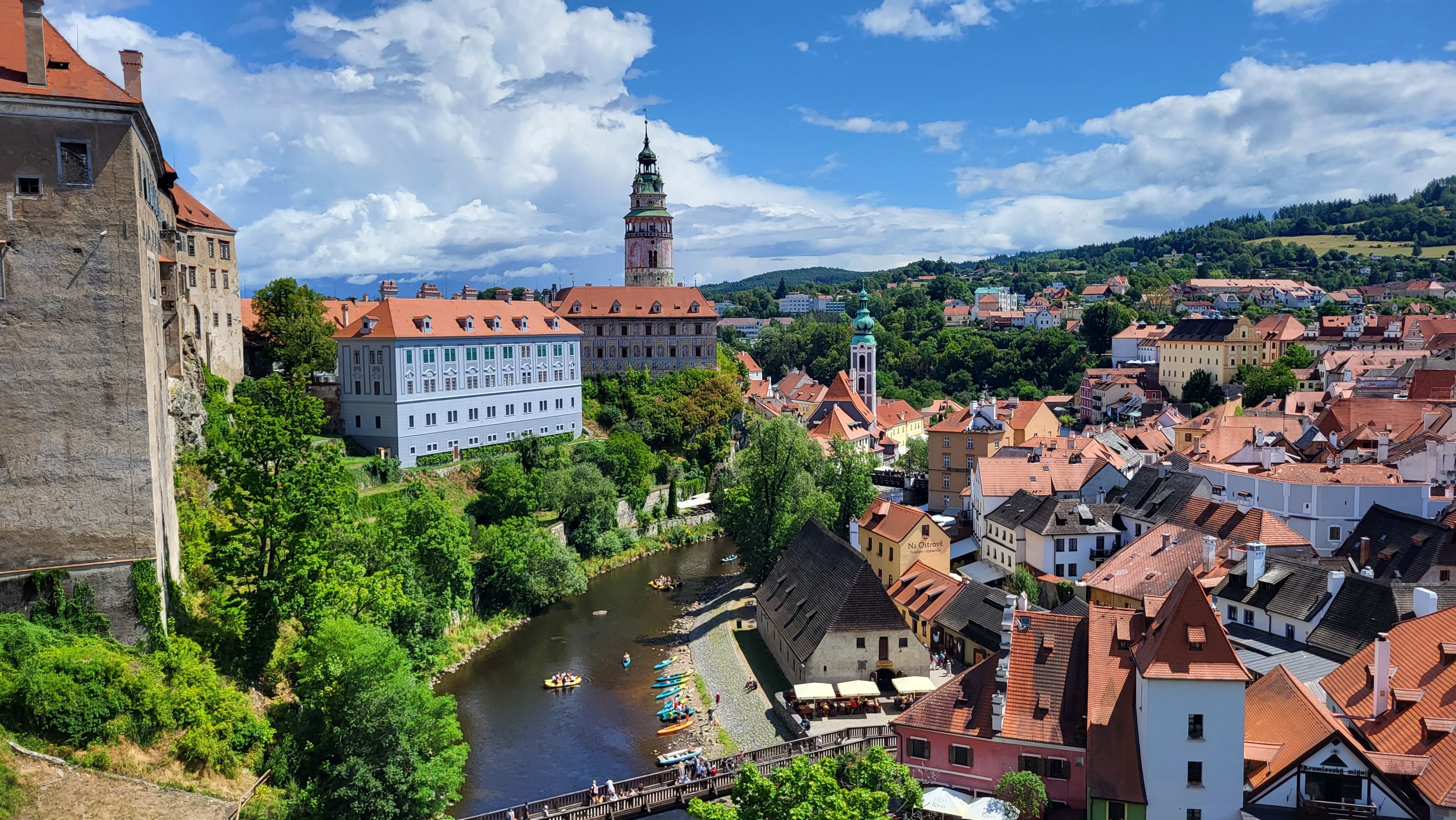
In Krumau, there was significantly more international tourism than in other places in the Czech Republic that we had visited so far (excluding Prague, of course). It was quite crowded, and there were also Asian tour groups.

But there were also finally some German tours, for which we immediately bought tickets.

So we saw some of the approximately 320 interior rooms.
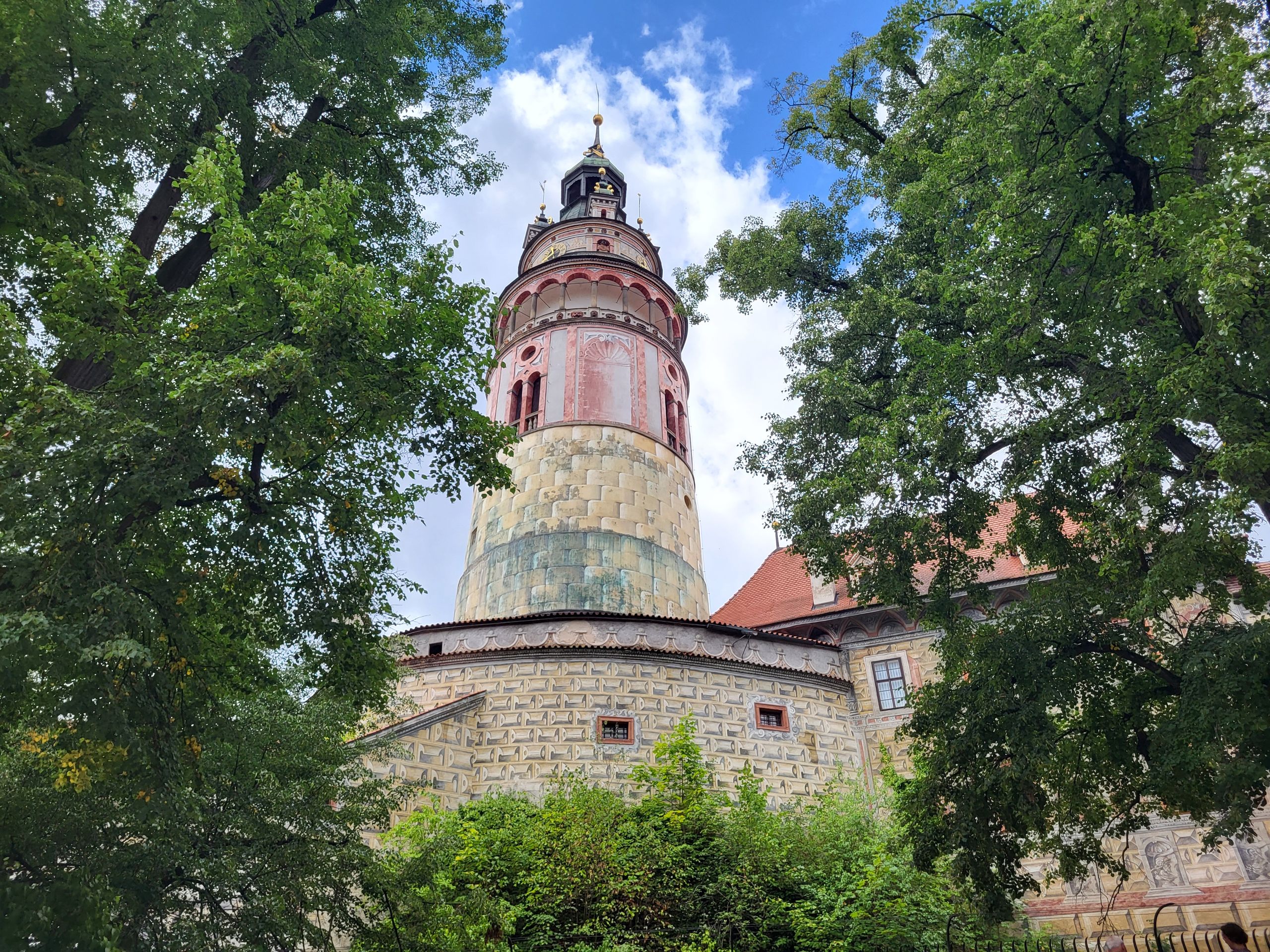
We didn't go directly back to our parking space, but wanted to visit another UNESCO World Heritage site: the village of Holašovice.

The Bohemian village is not far from Budweis.
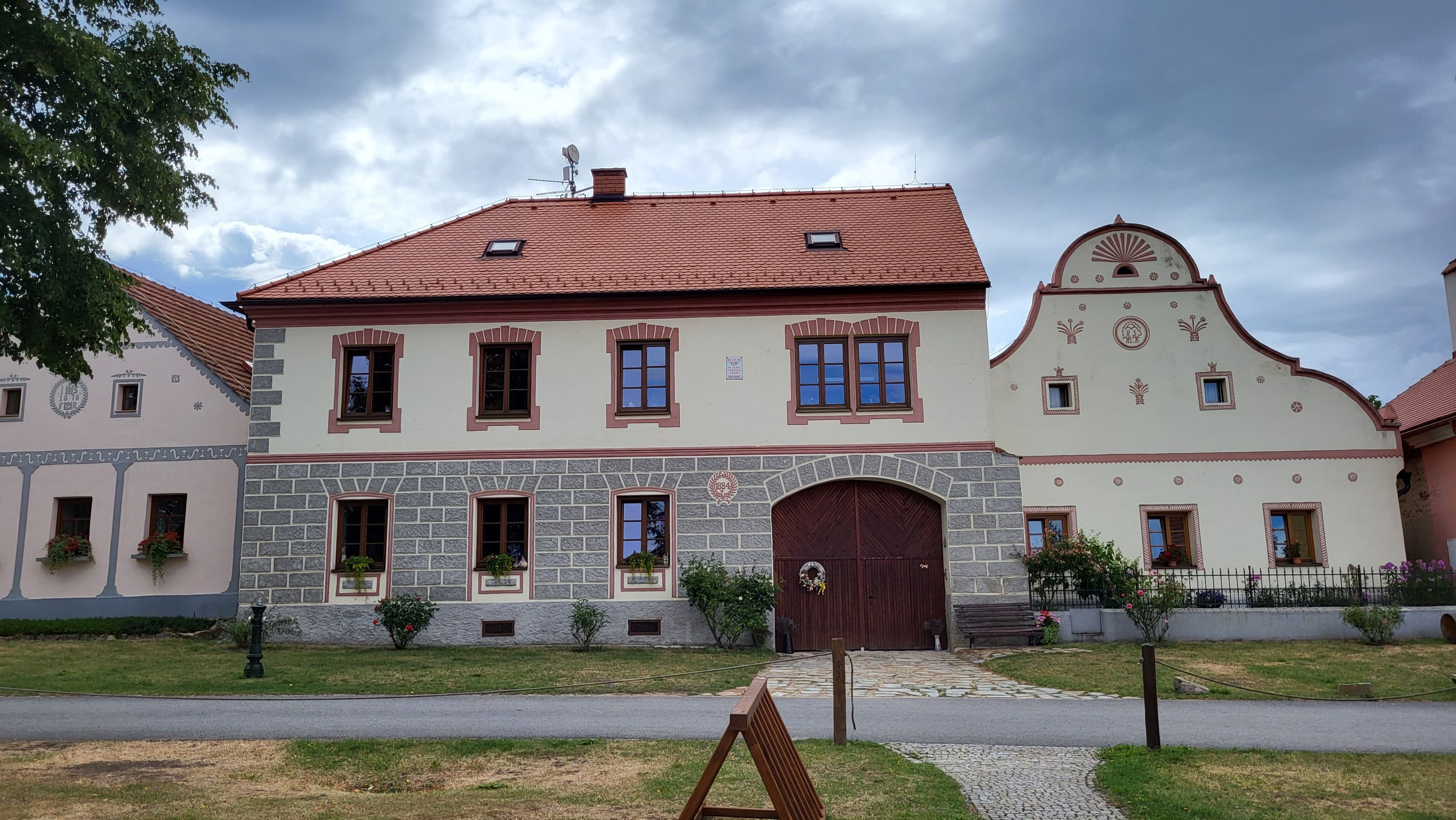
Around the village square are the beautifully renovated houses and farms, most of which date back to the second half of the 19th century.

The houses are designed in the so-called peasant baroque style. However, it is not an open-air museum, but a permanently inhabited village.
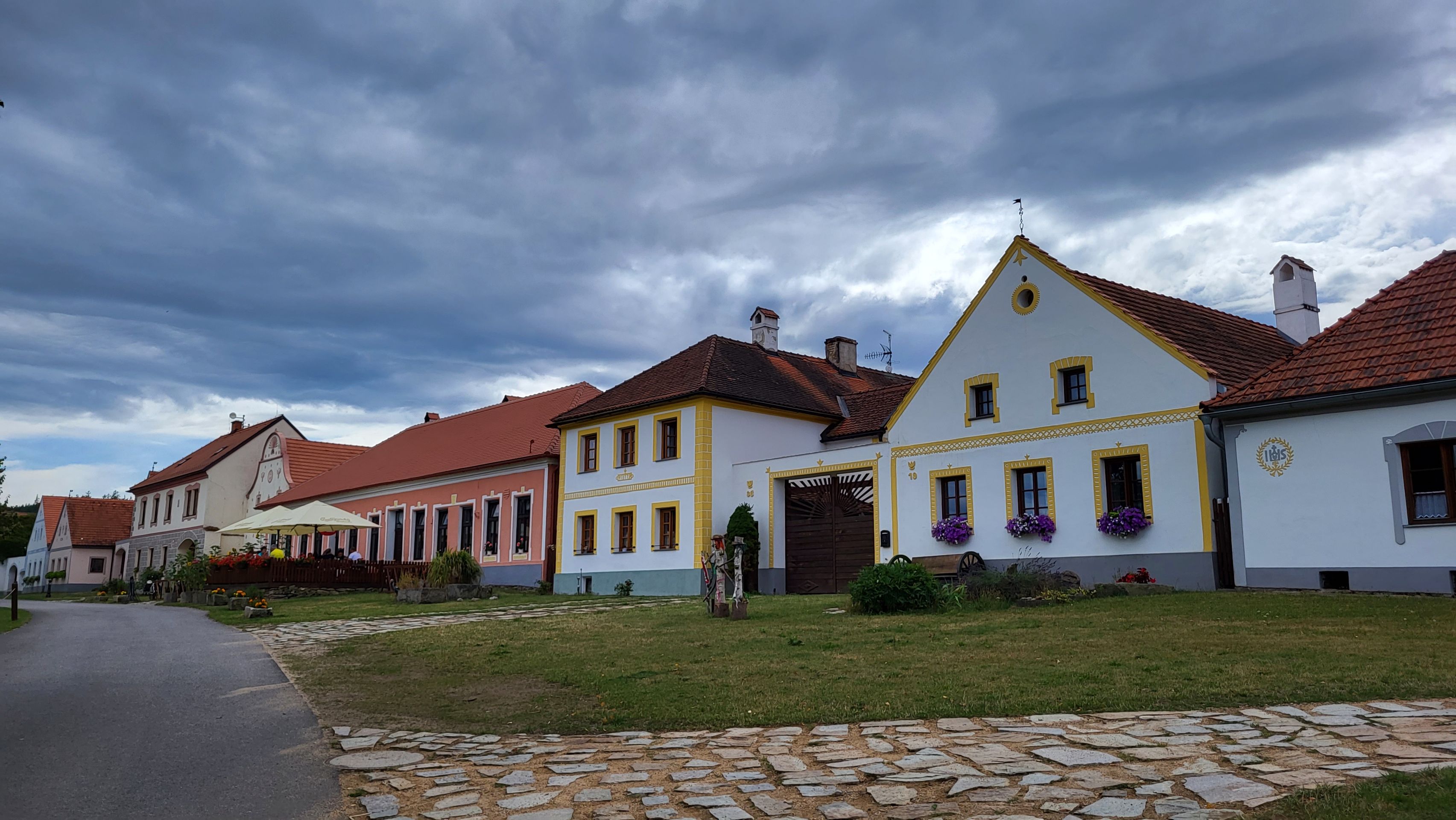
Two restaurants suggested that many tourists come here - as did the exorbitant parking fees in the only parking lot next to the central village square.
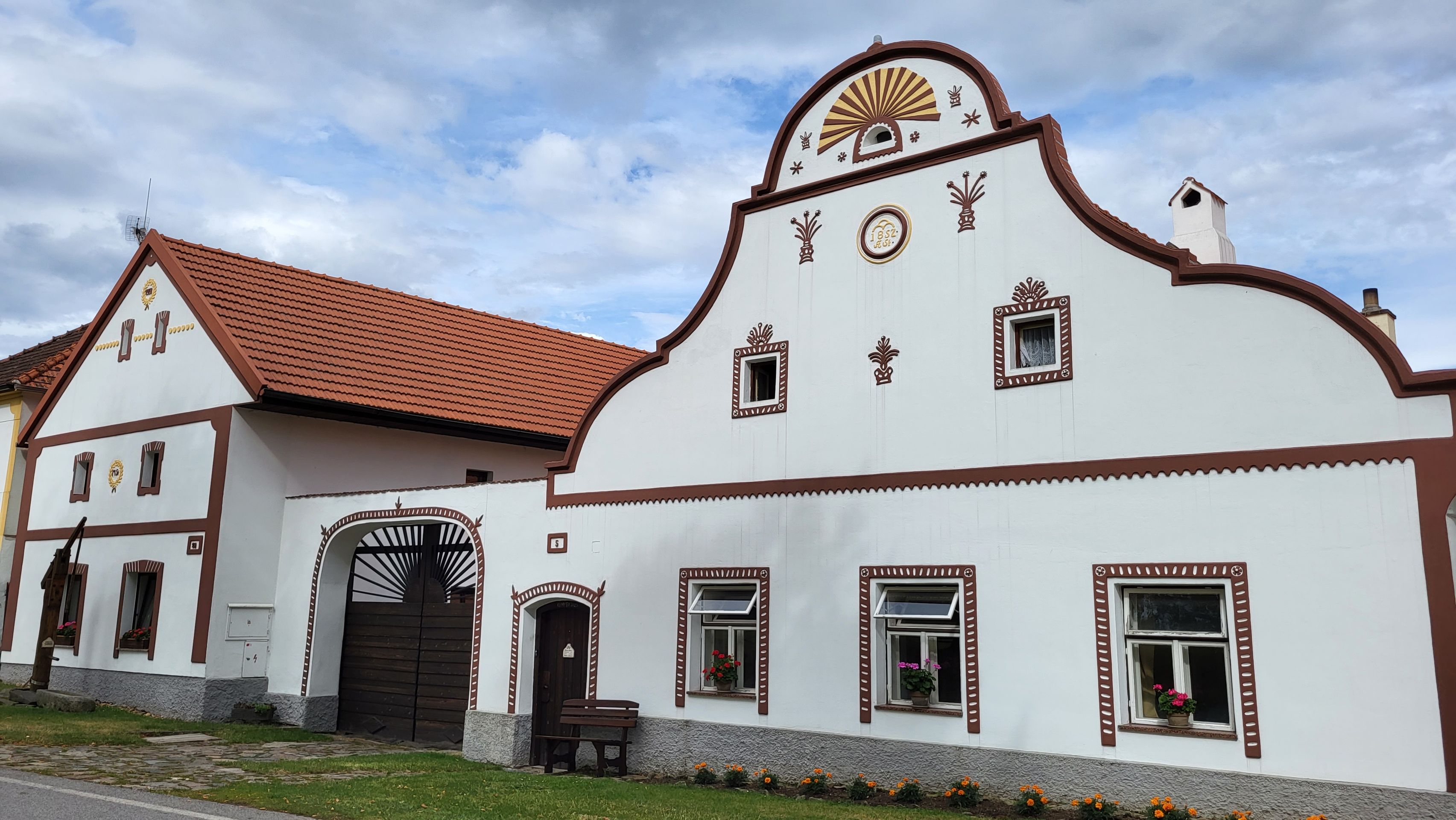
Our way back to Budweis was a bit difficult: the main road (or what they call it here) was closed. Google suggested not to follow the official detour, but to choose a different route. We should have been suspicious, but we followed the navigation. The road kept getting smaller until it wasn't even paved anymore and only had enough width for one car (which was not ideal for our motorhome).
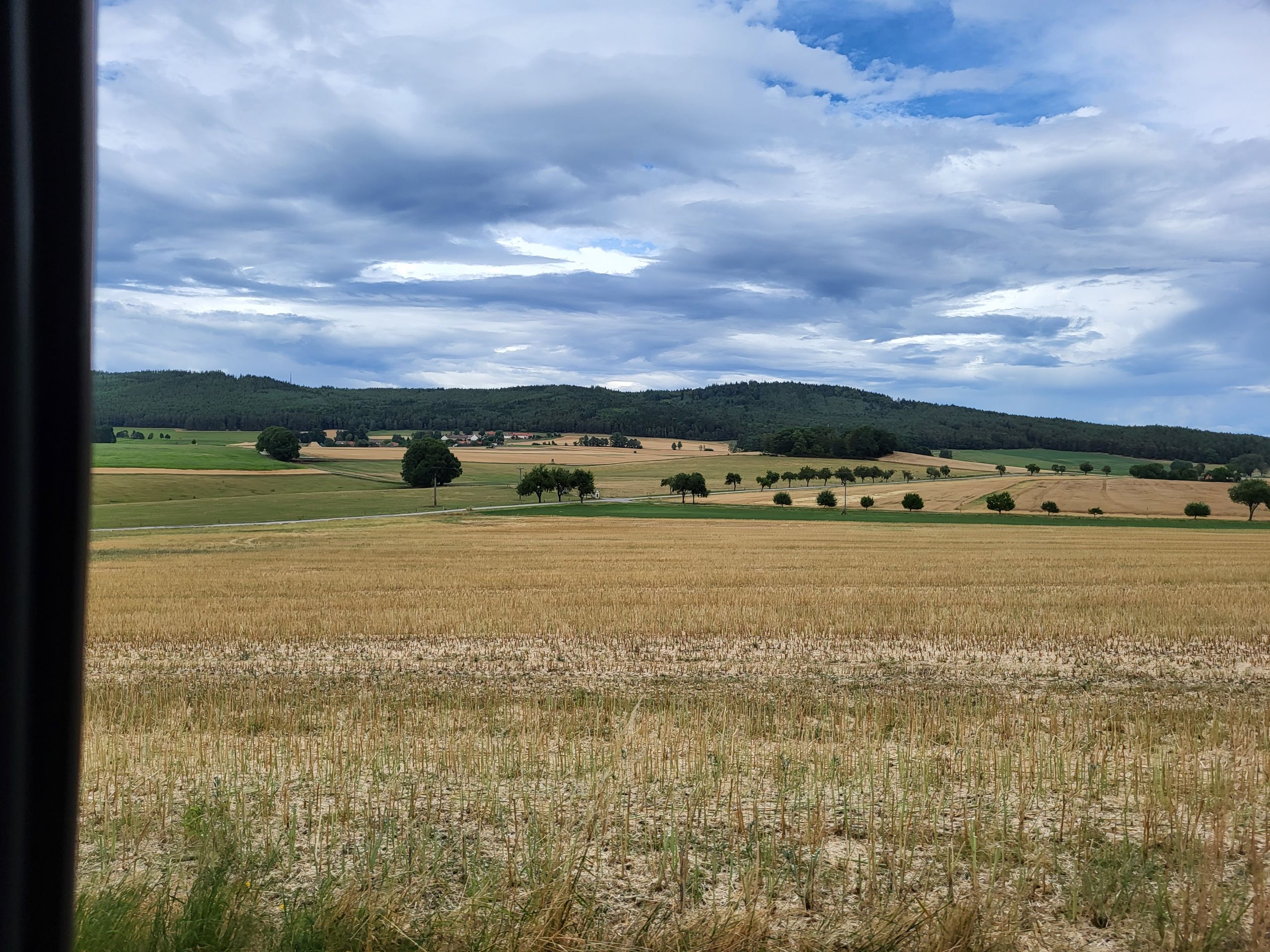
Eventually, the road got bigger again and we arrived safely in Budweis.

In the evening, we went to the city center of Budweis to end the day on Ottokar II Square with a cocktail.
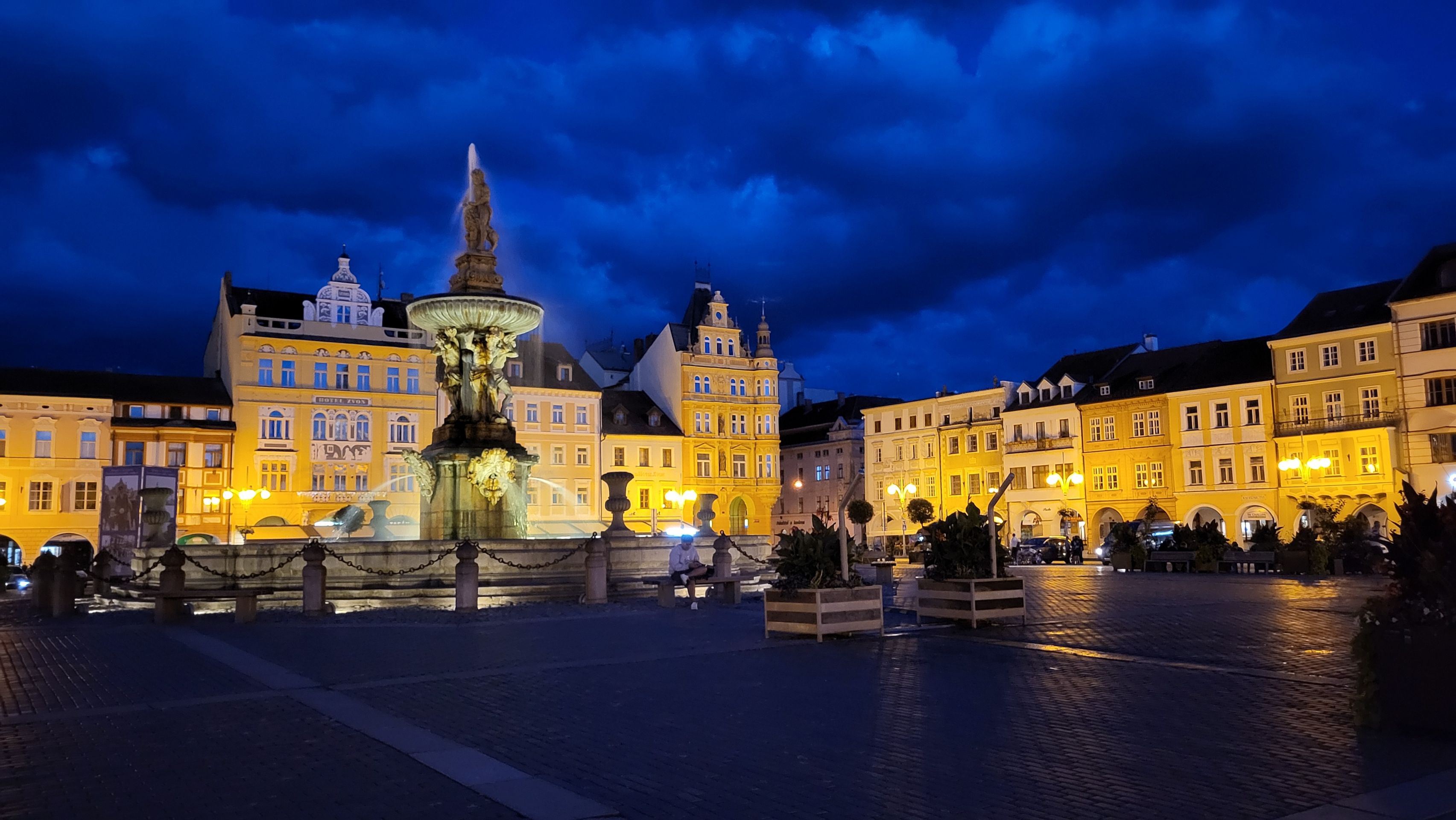
Feliratkozás a hírlevélre
Válasz
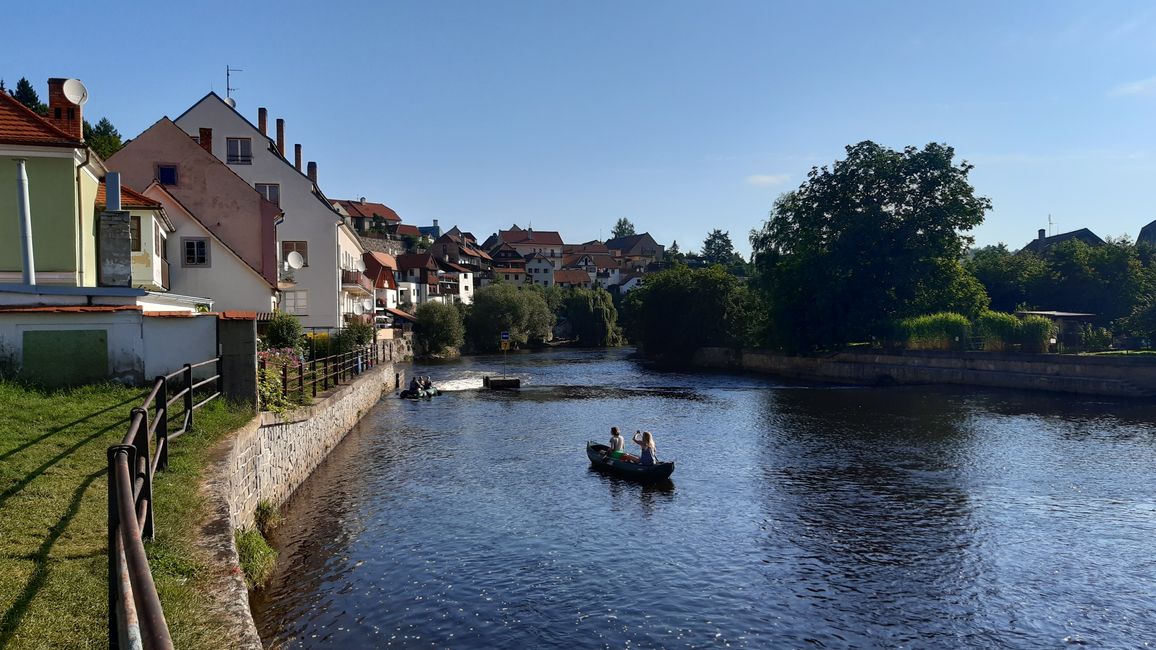
Csehország utazási jelentések
